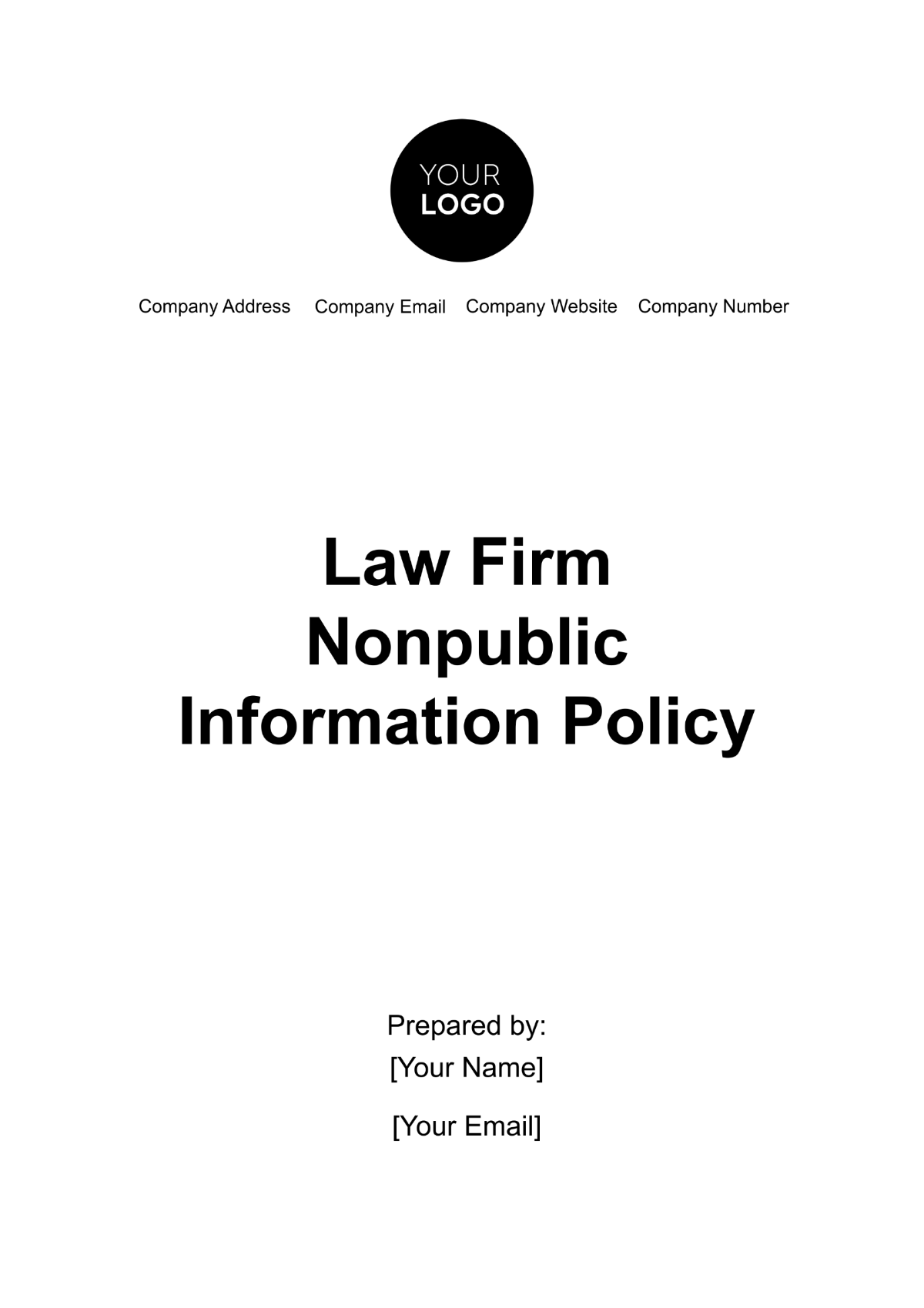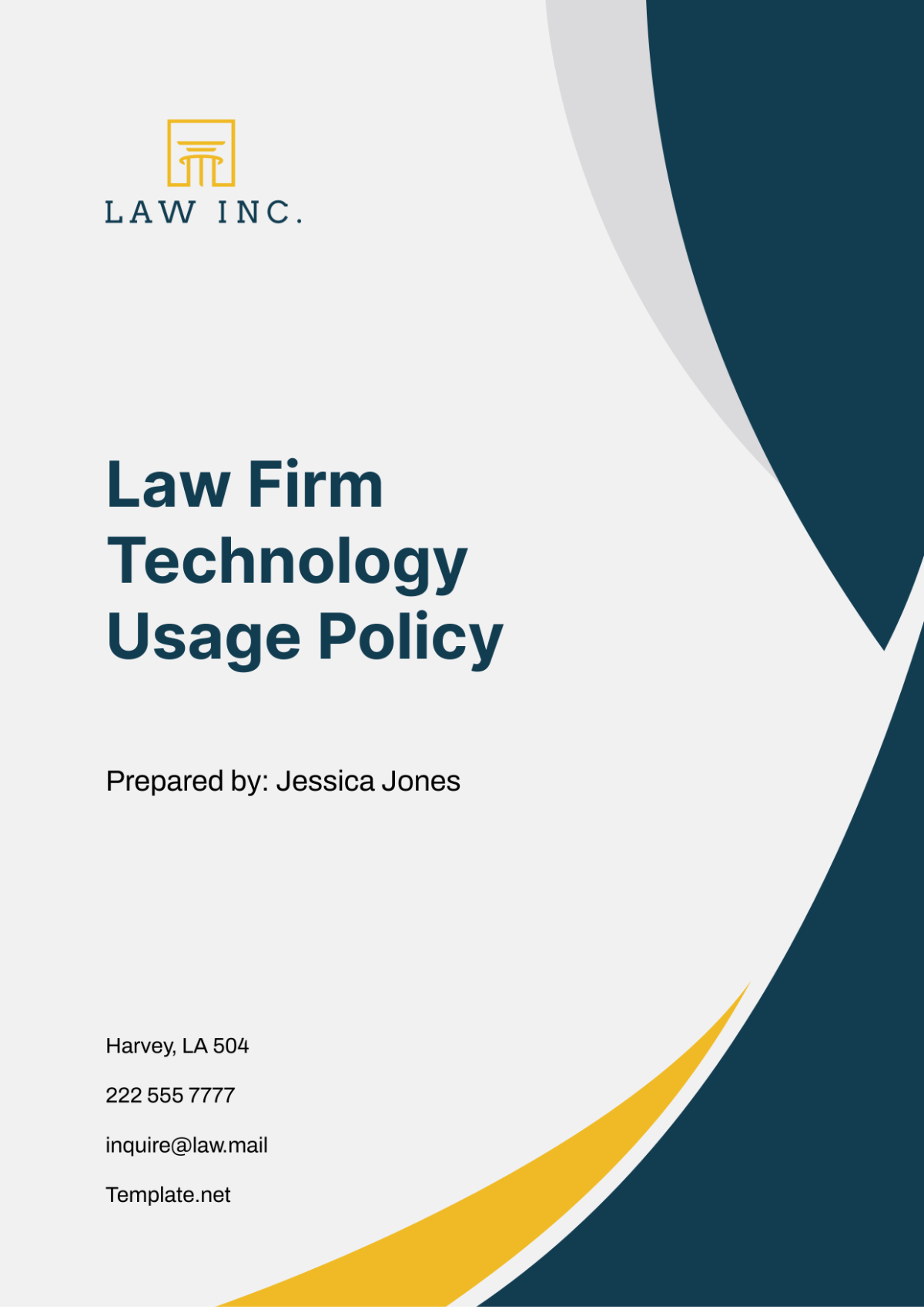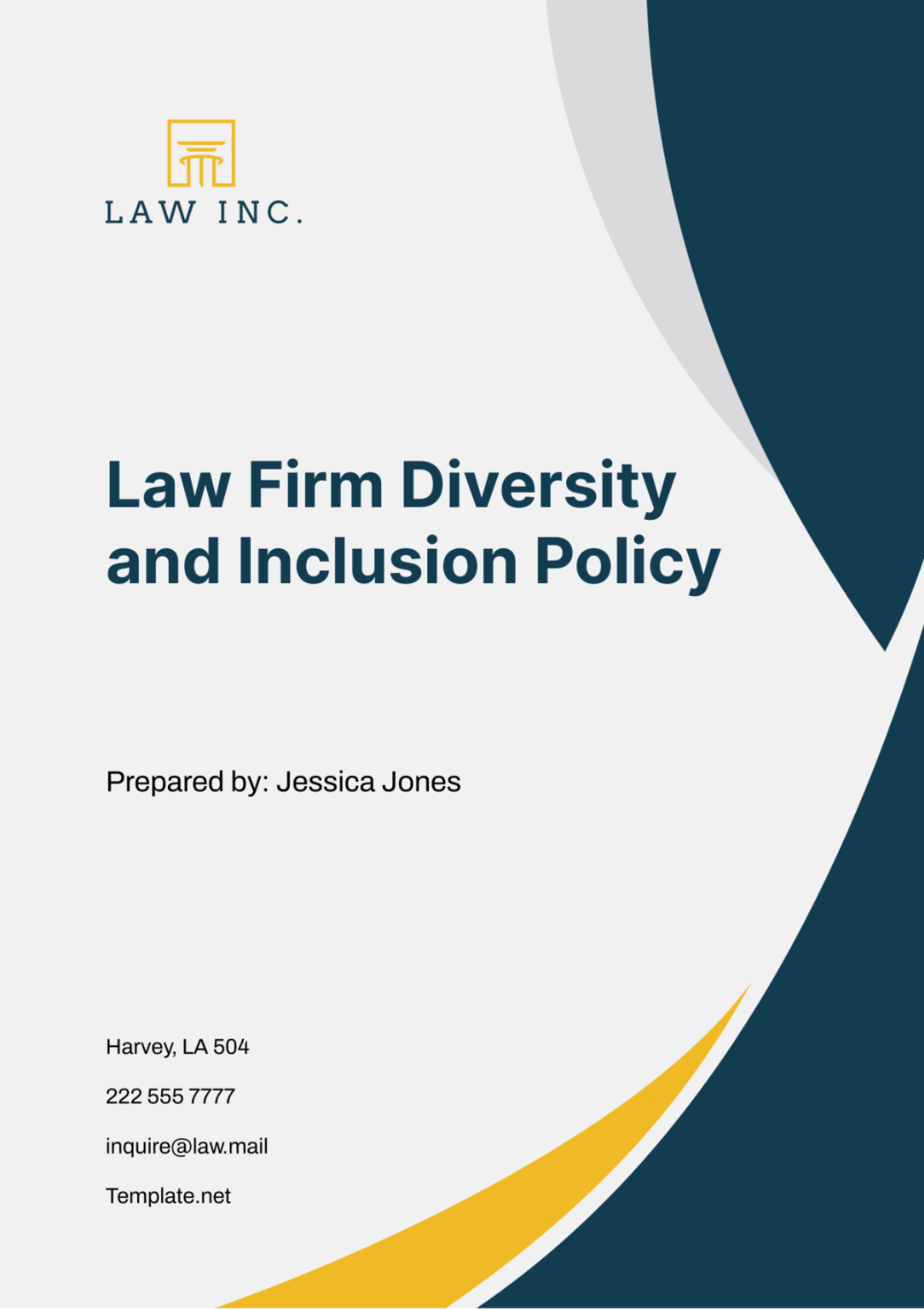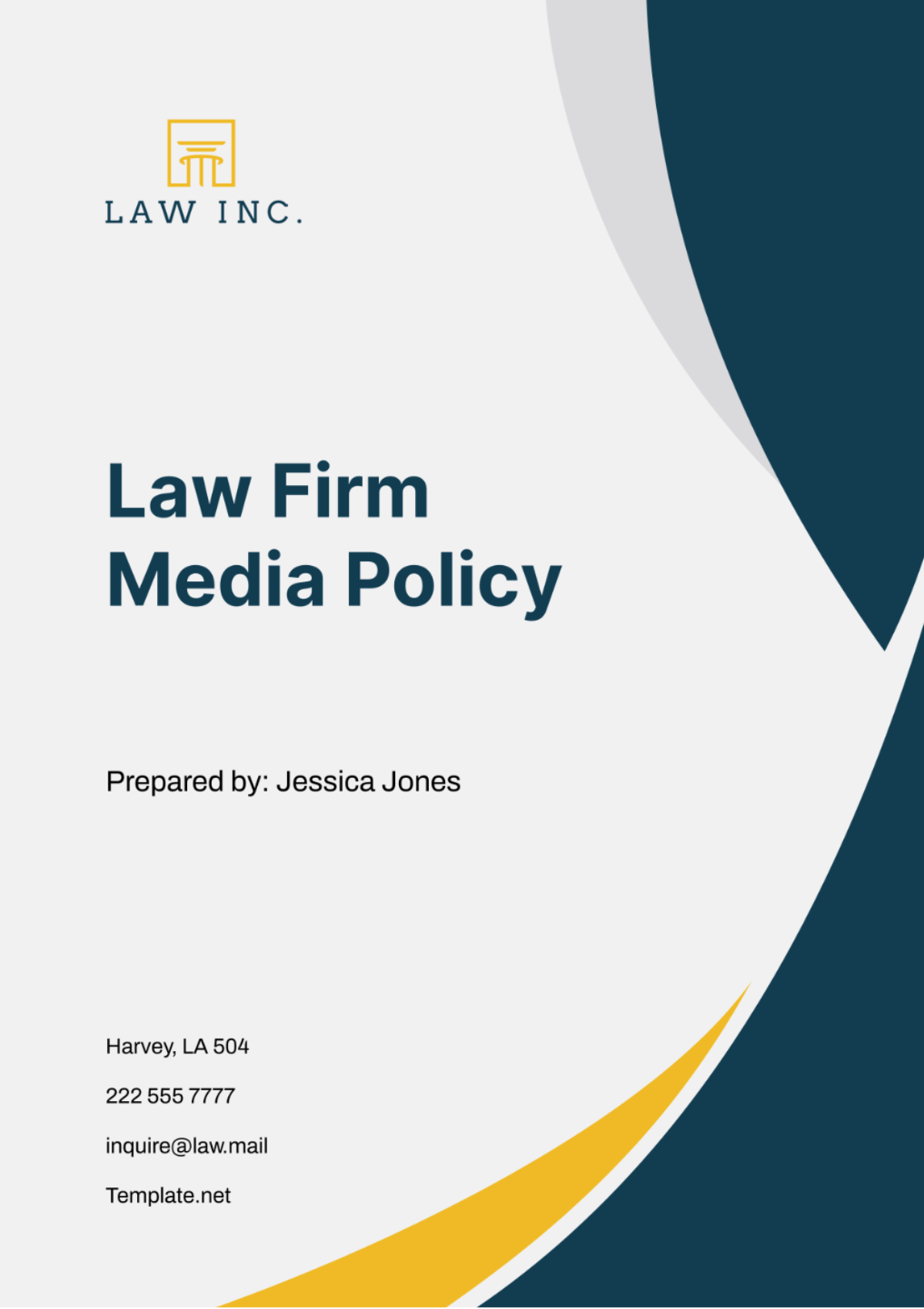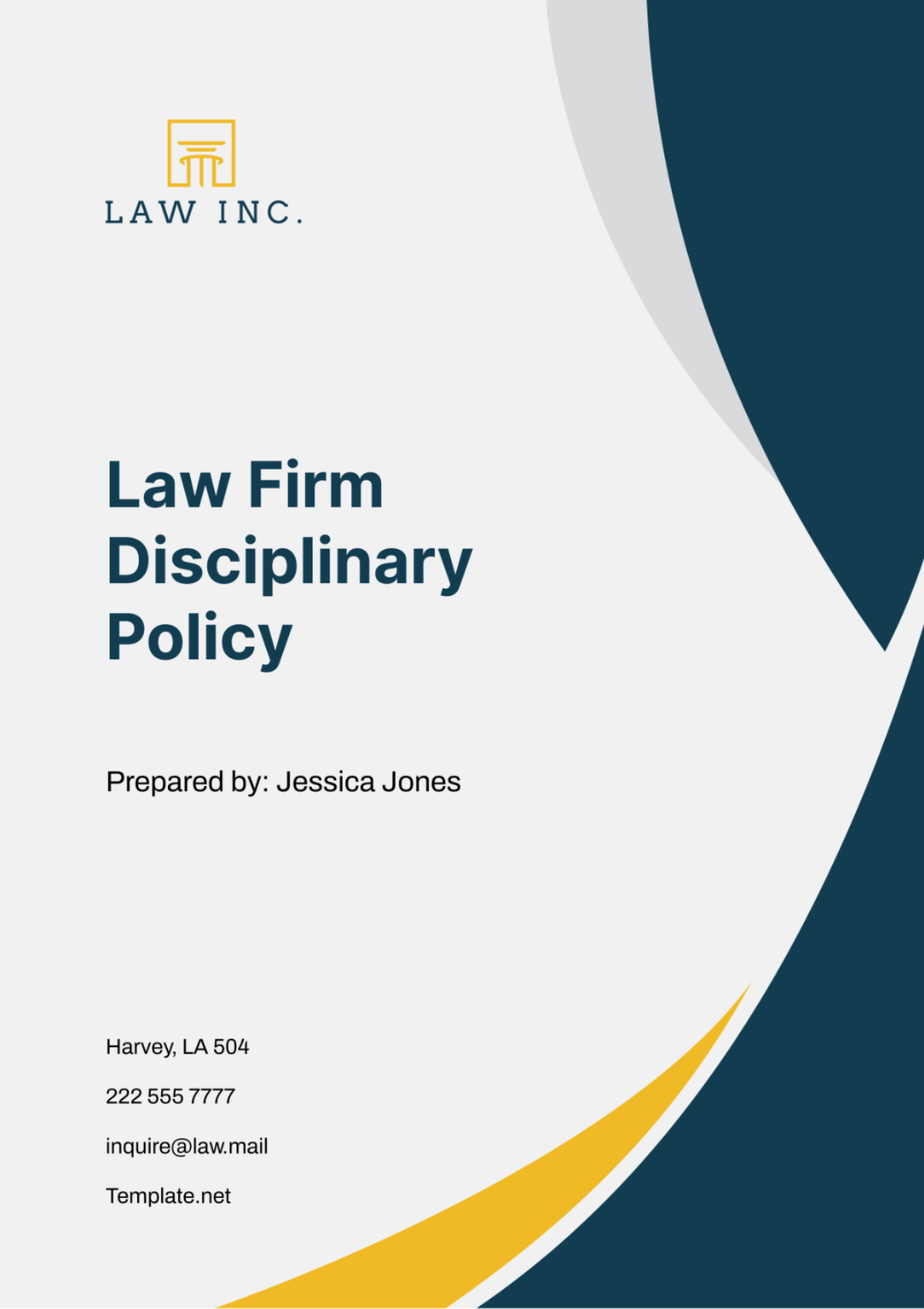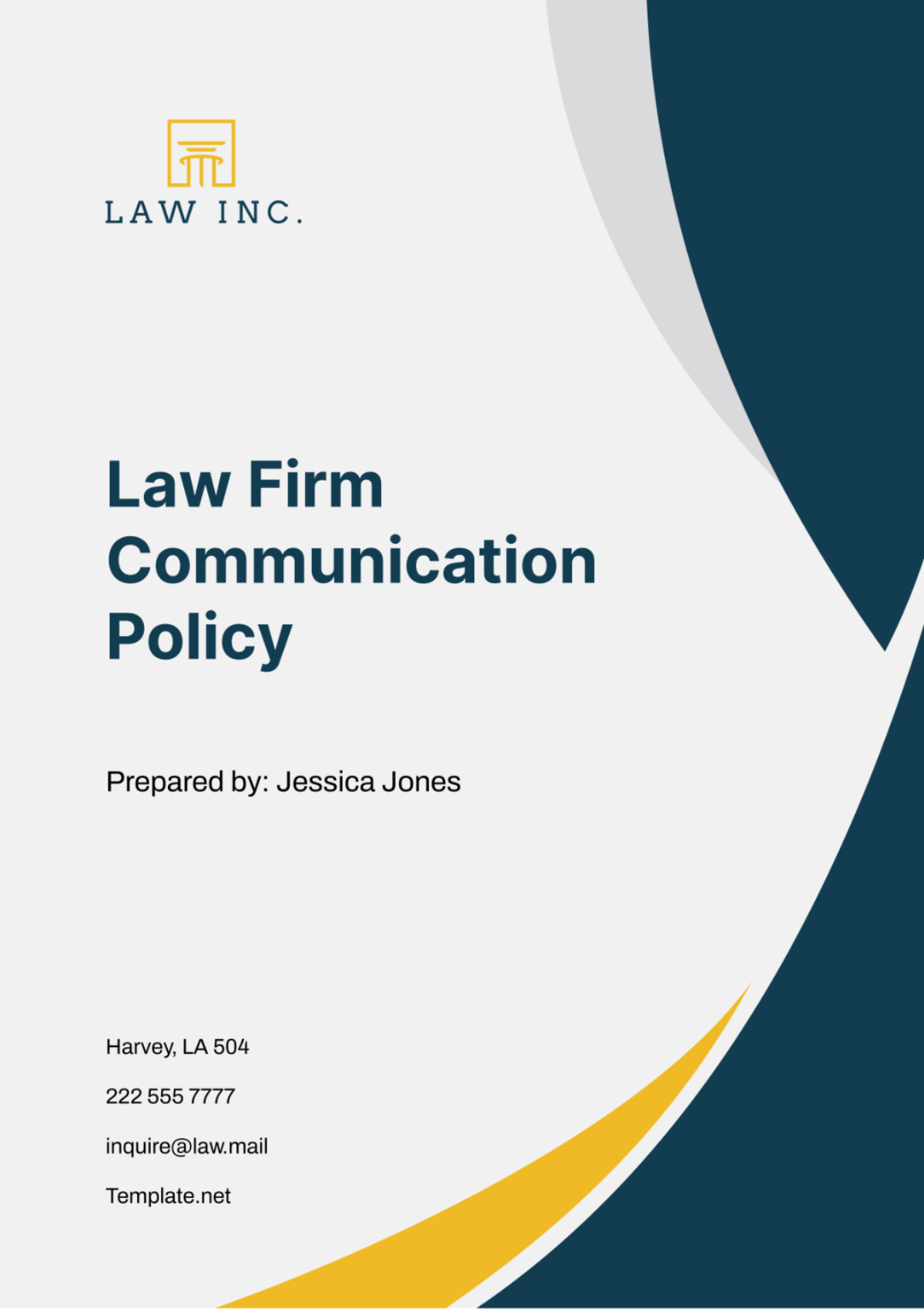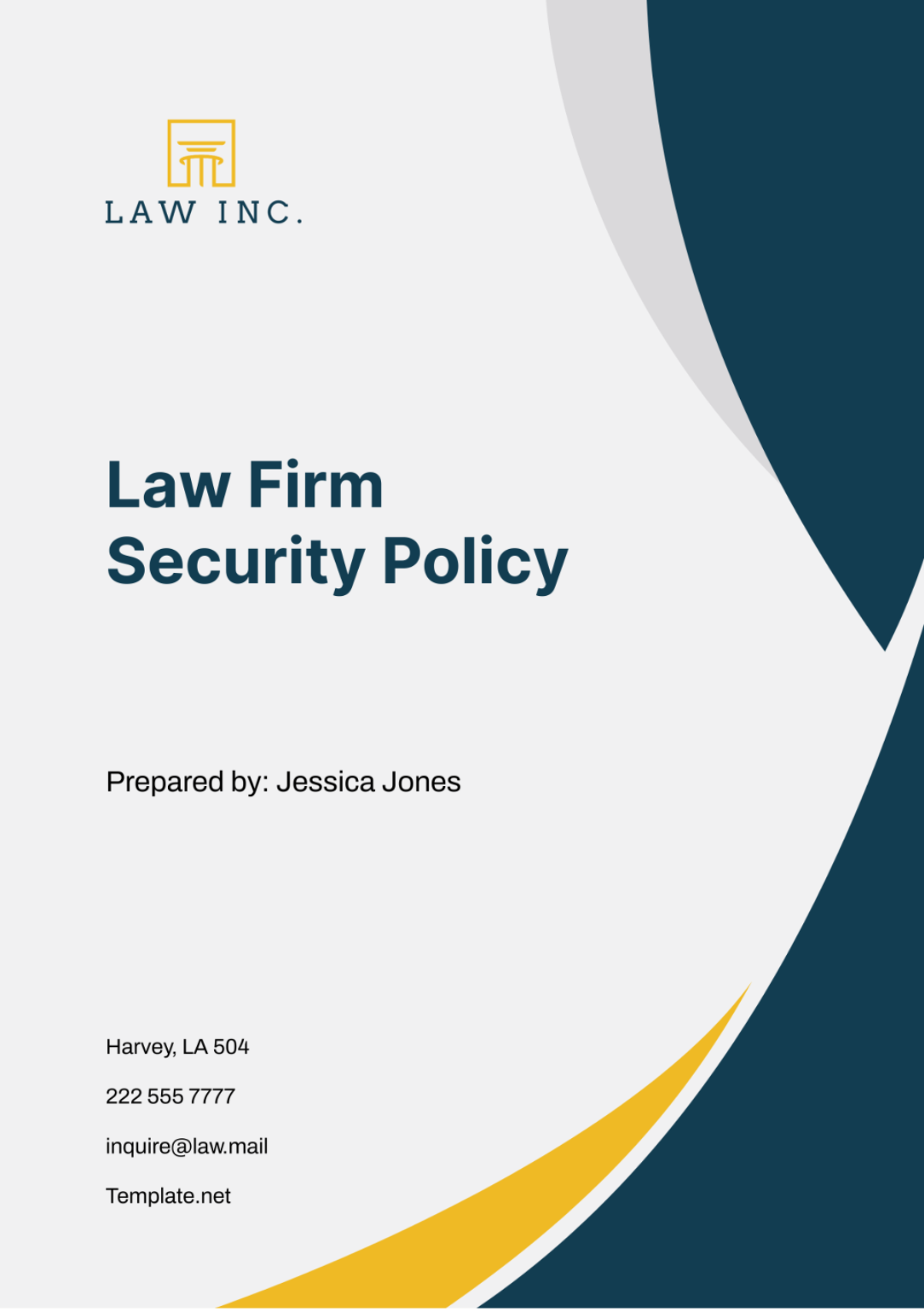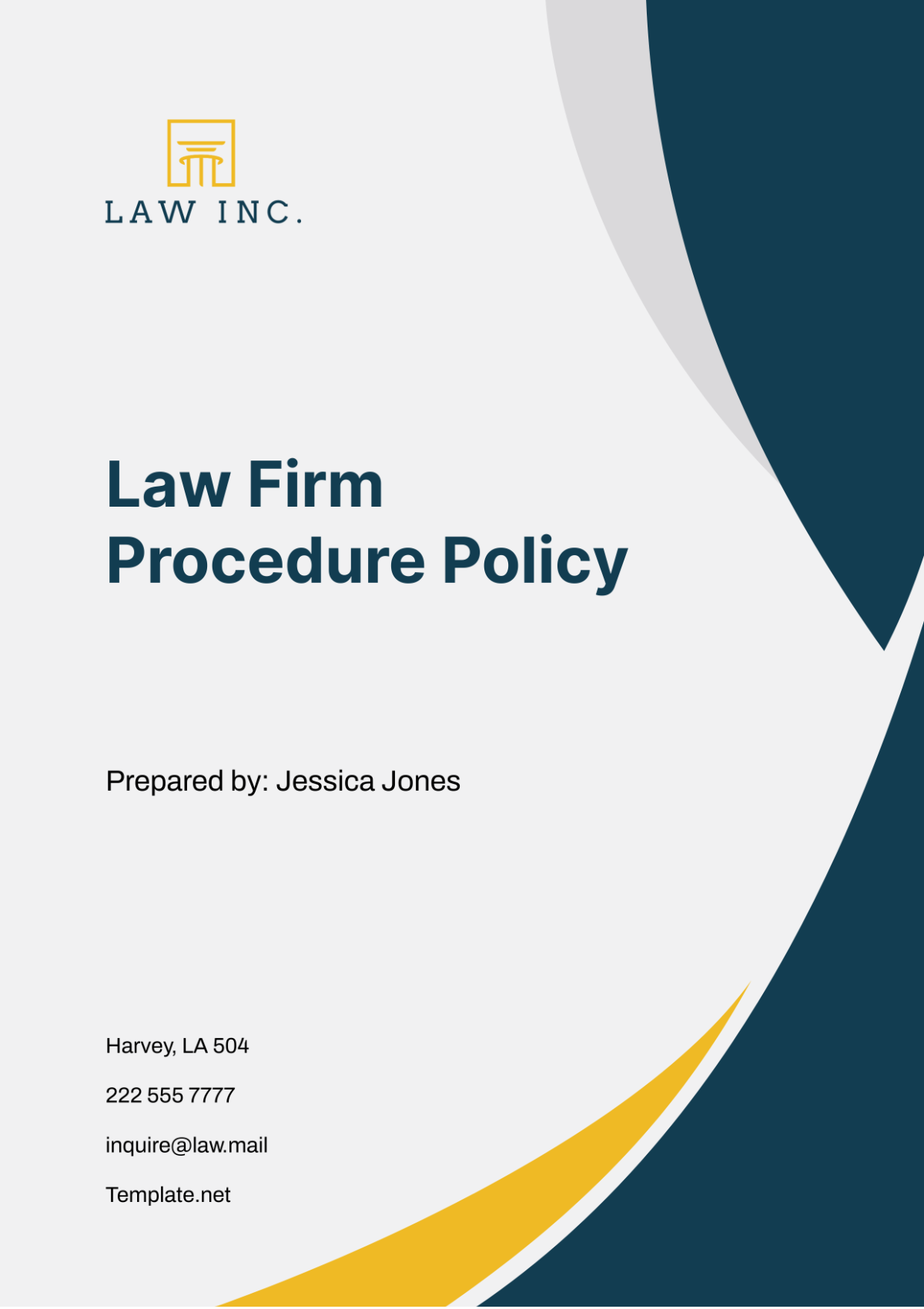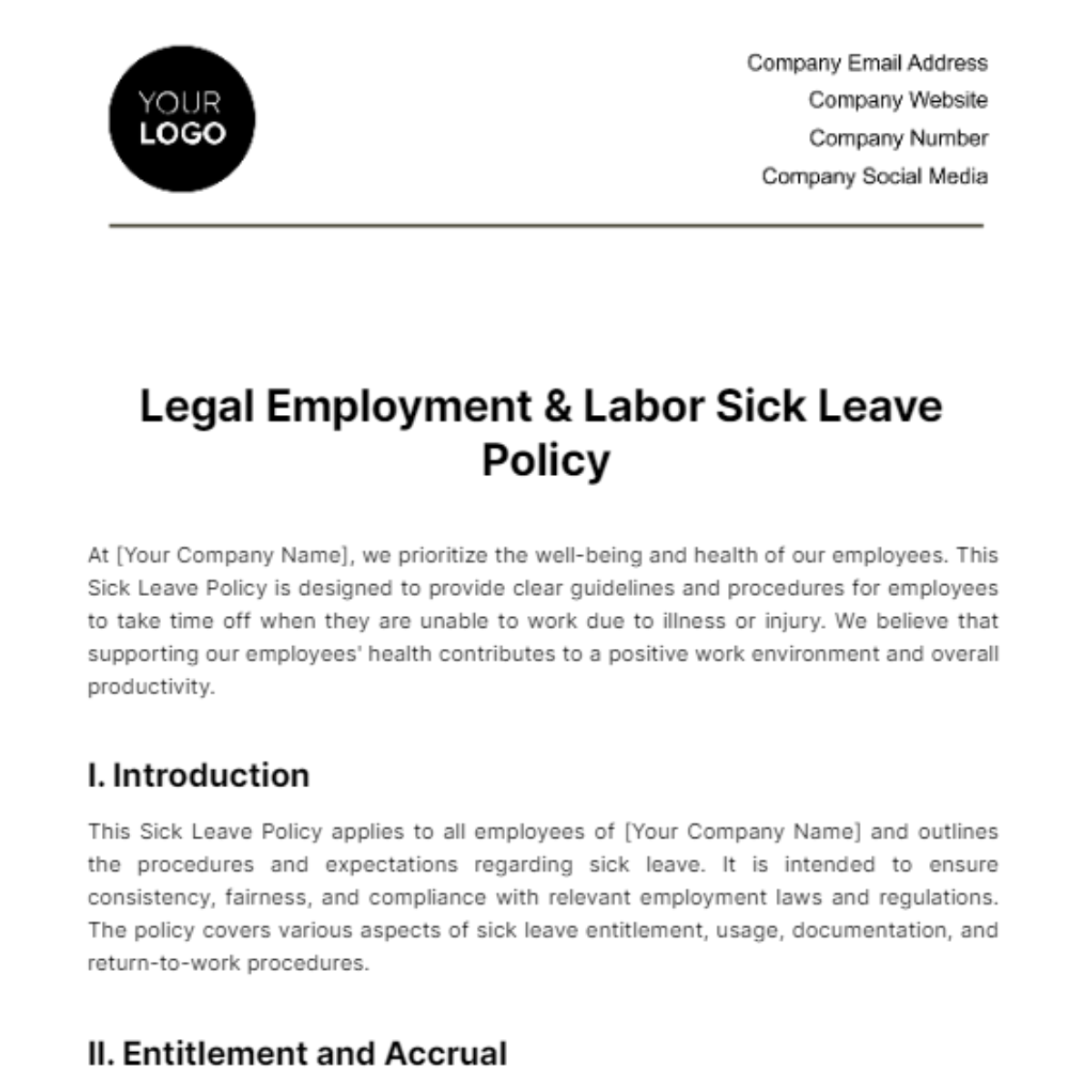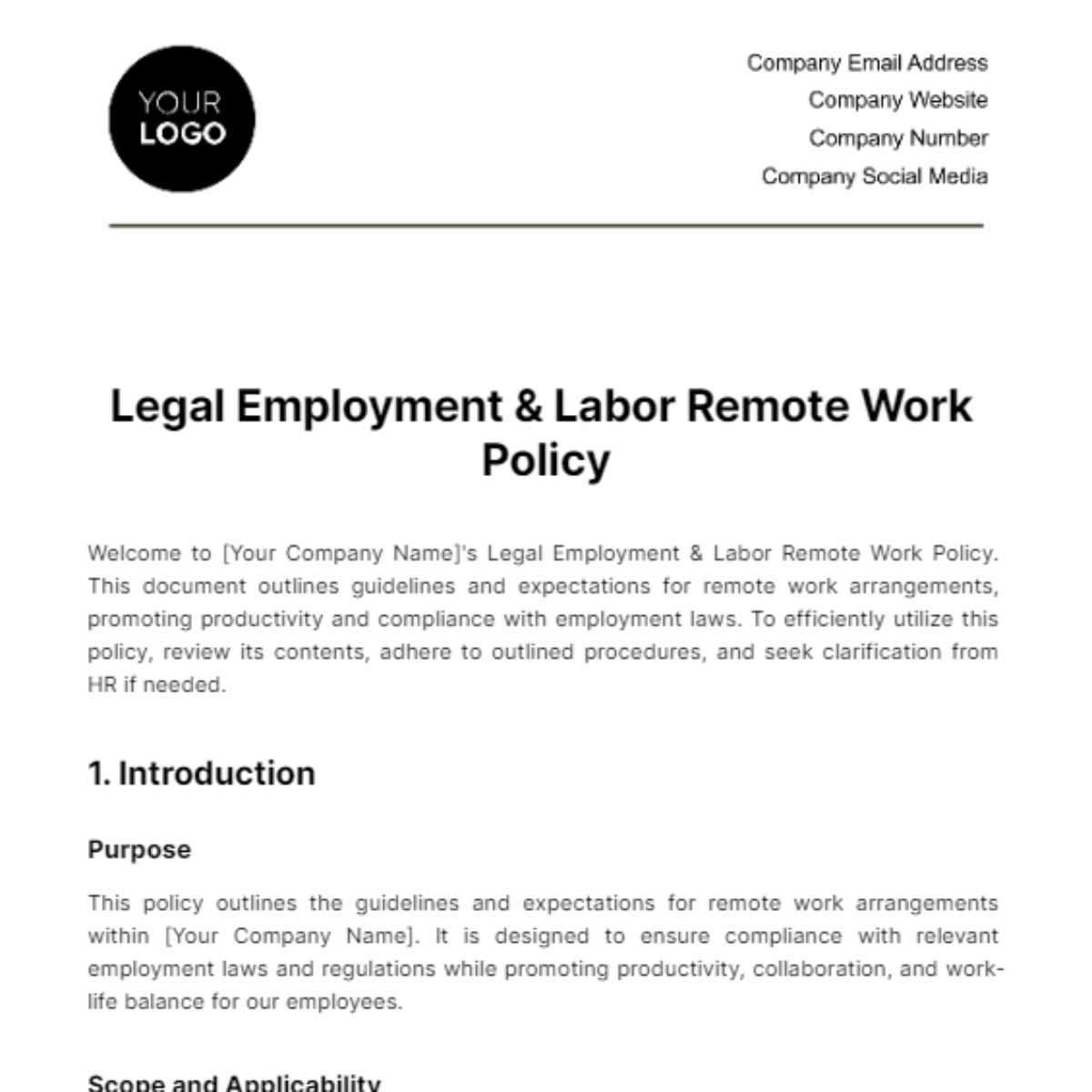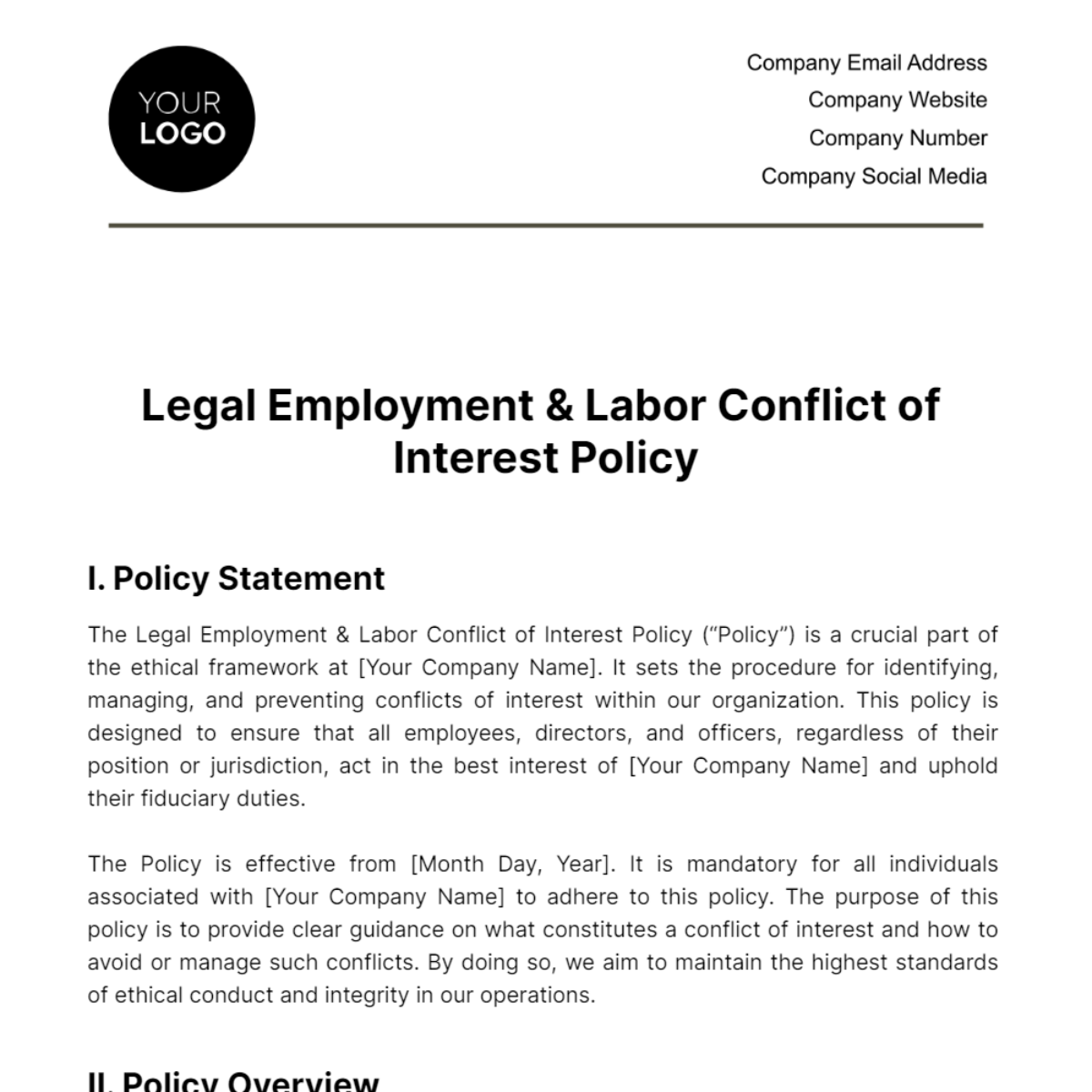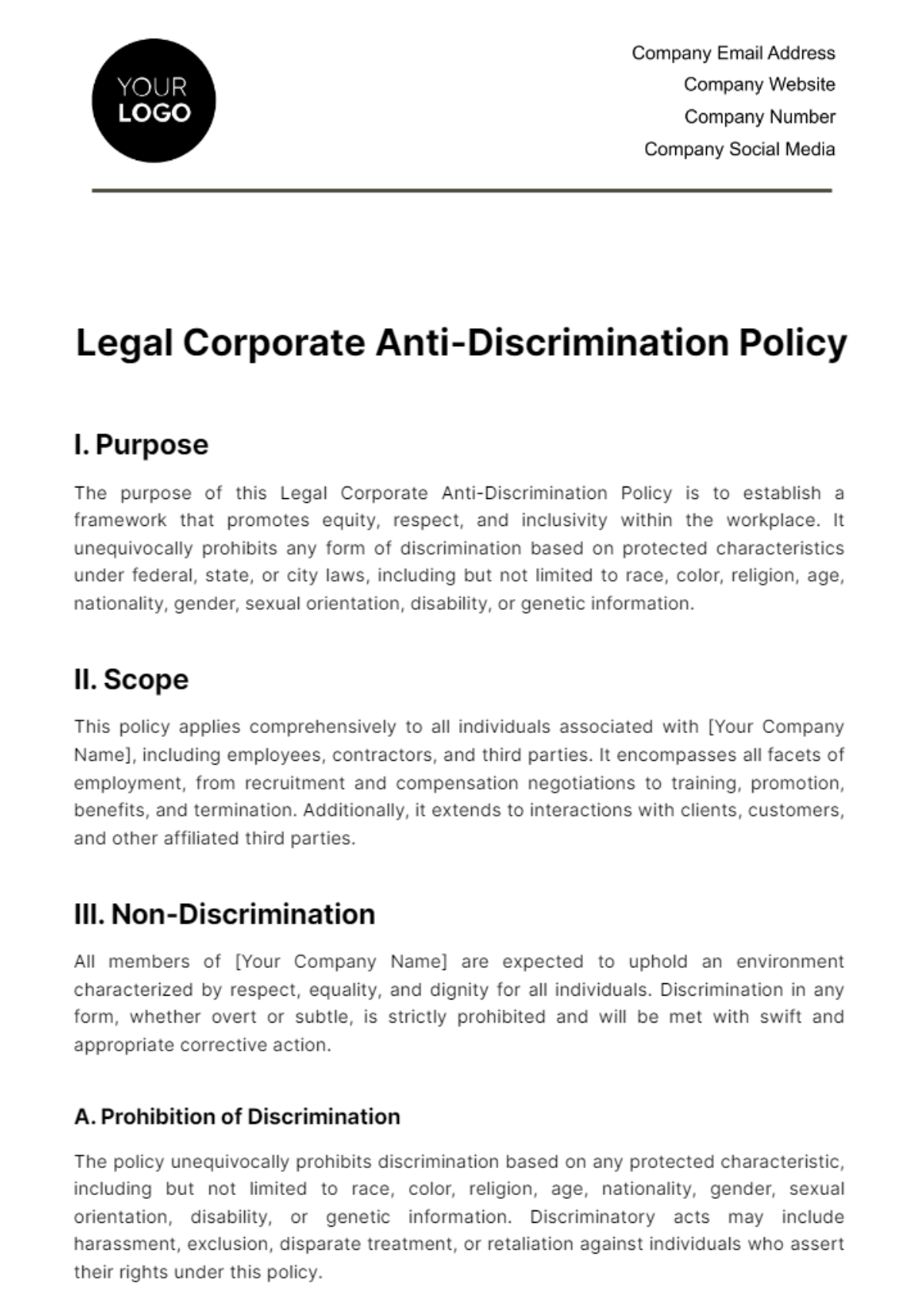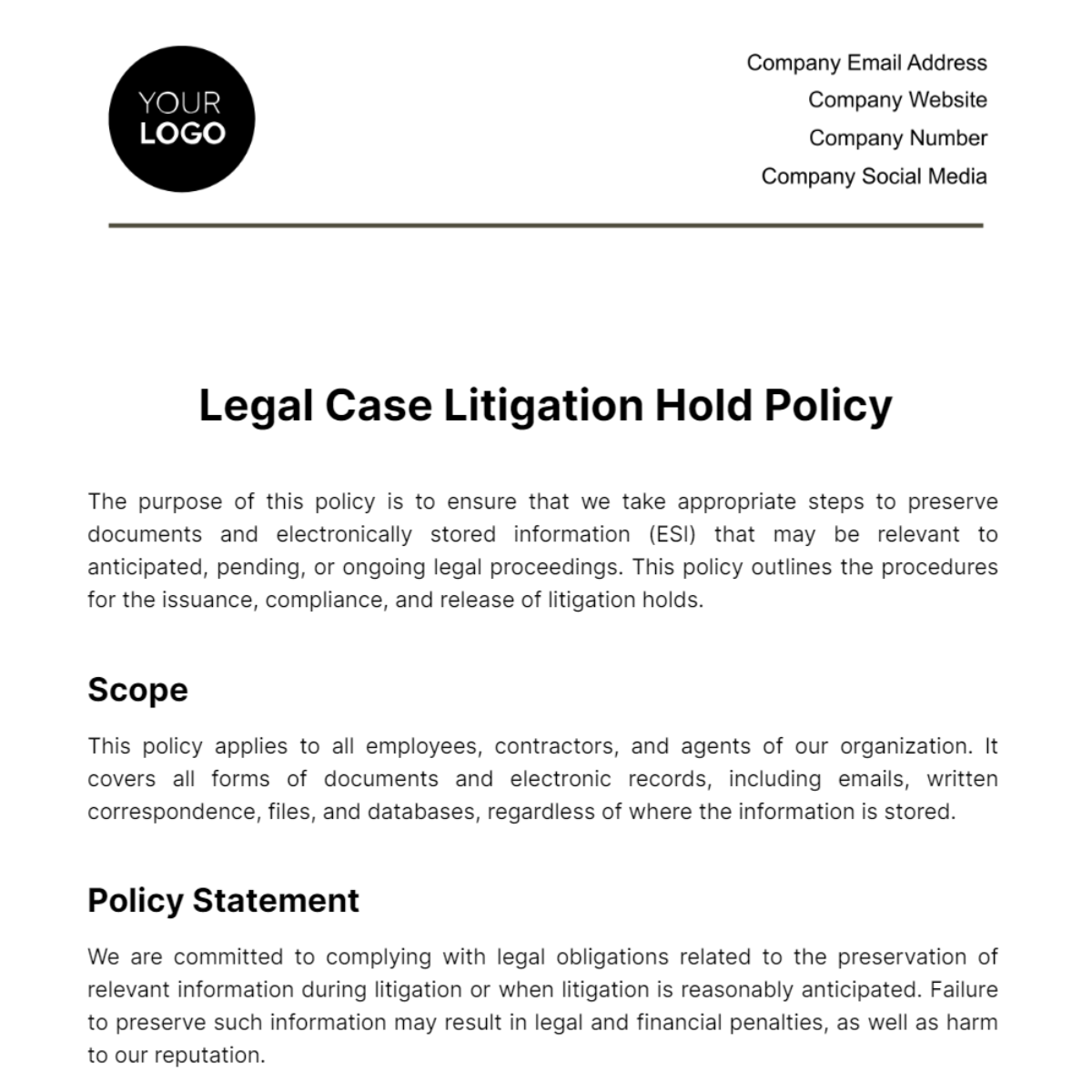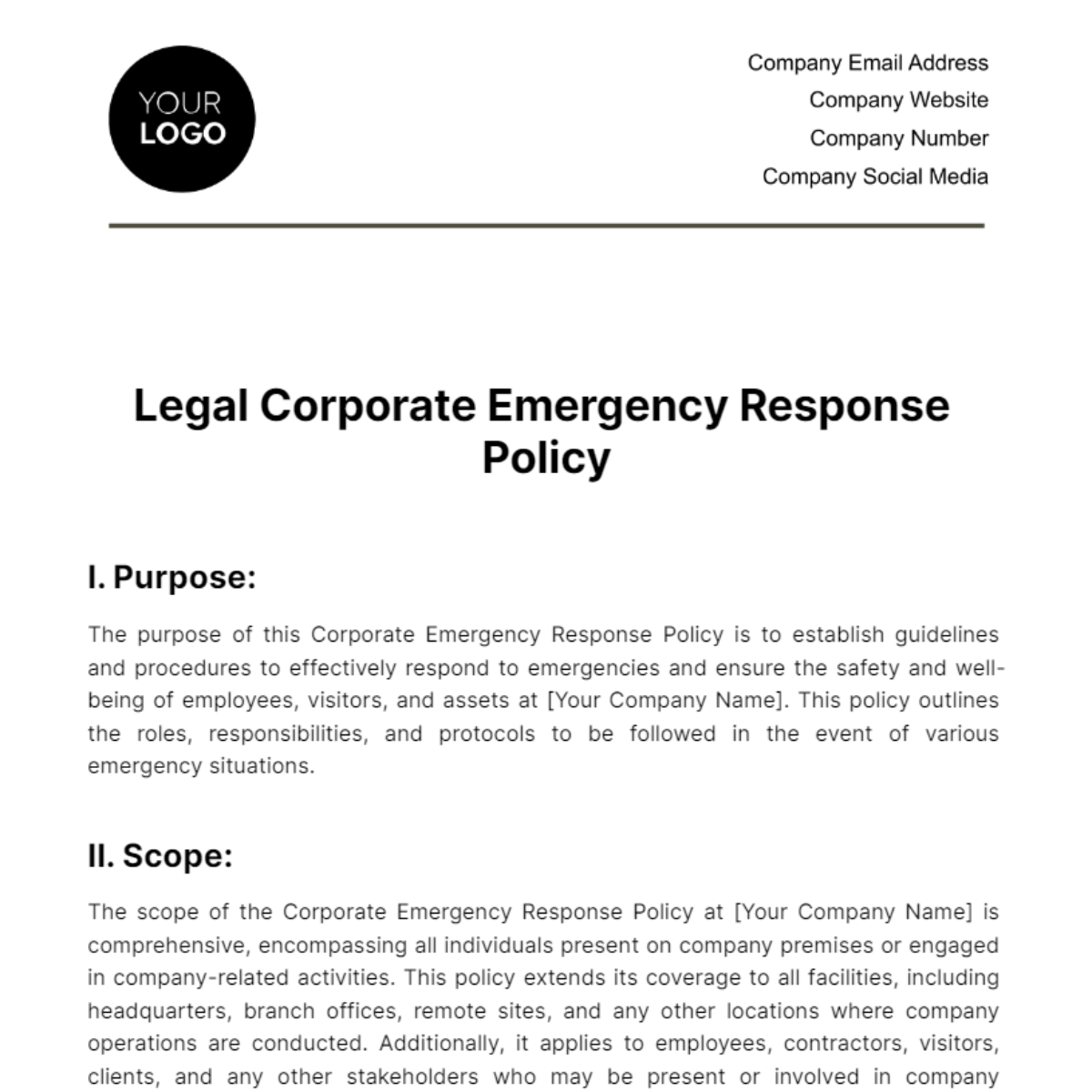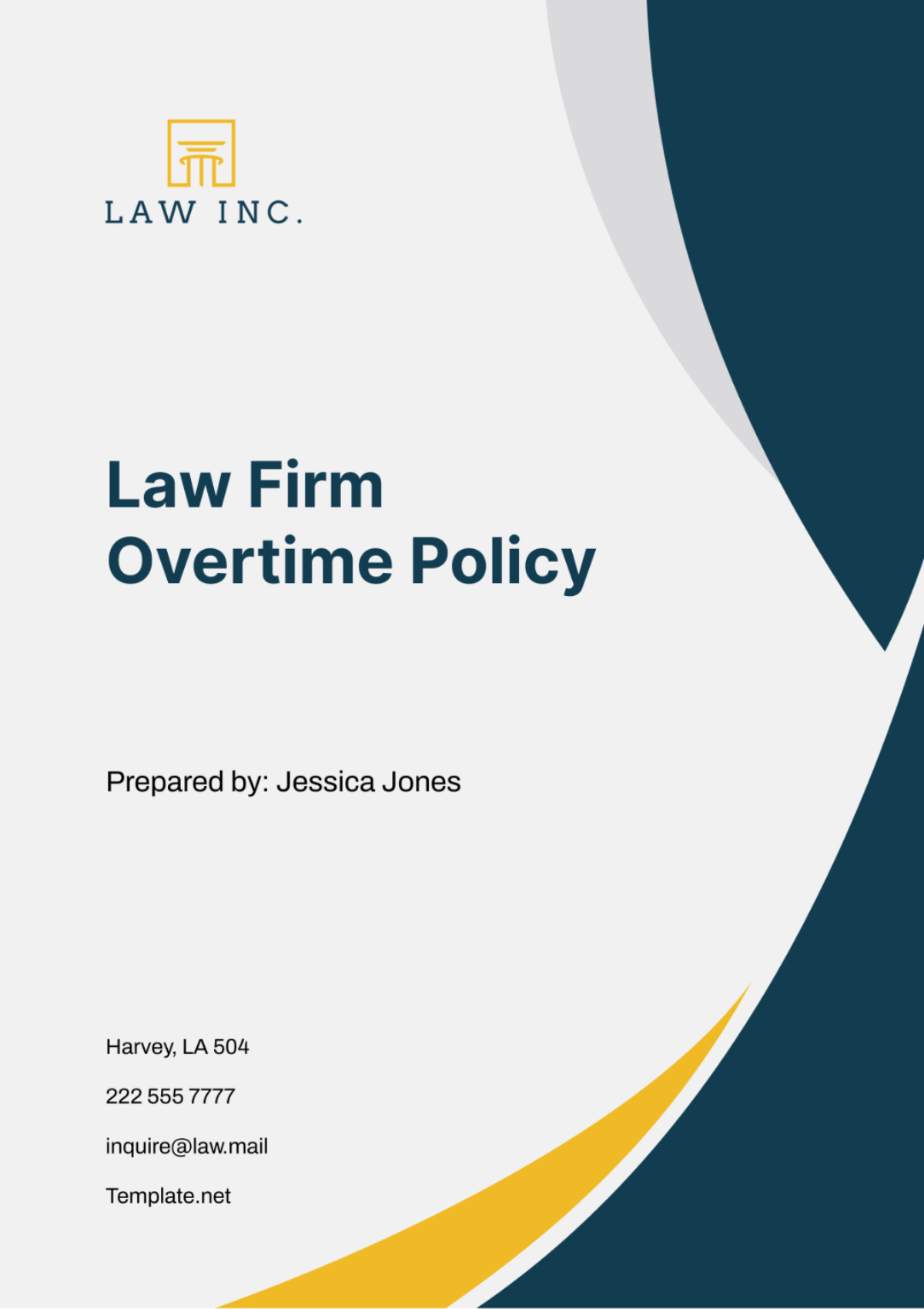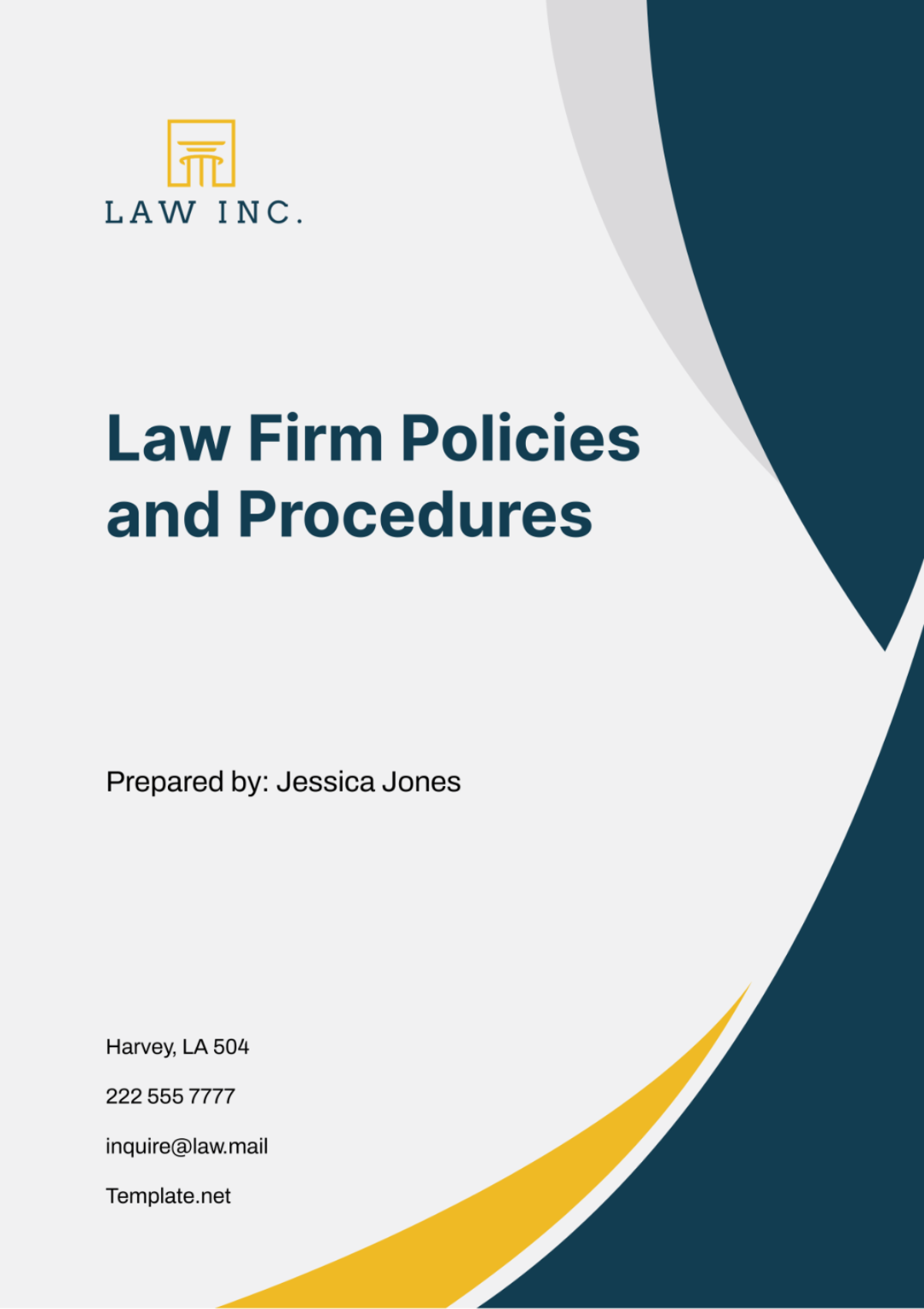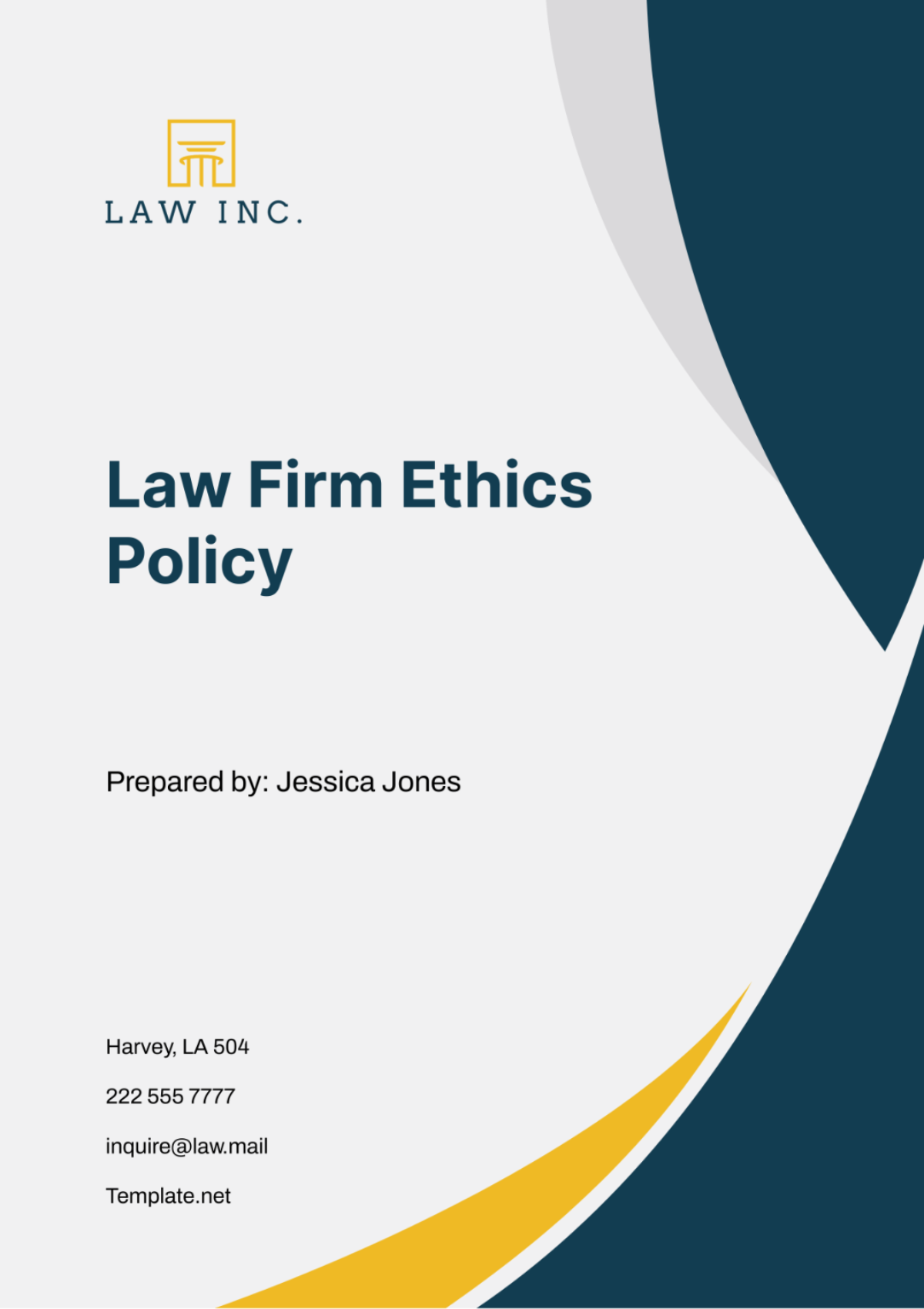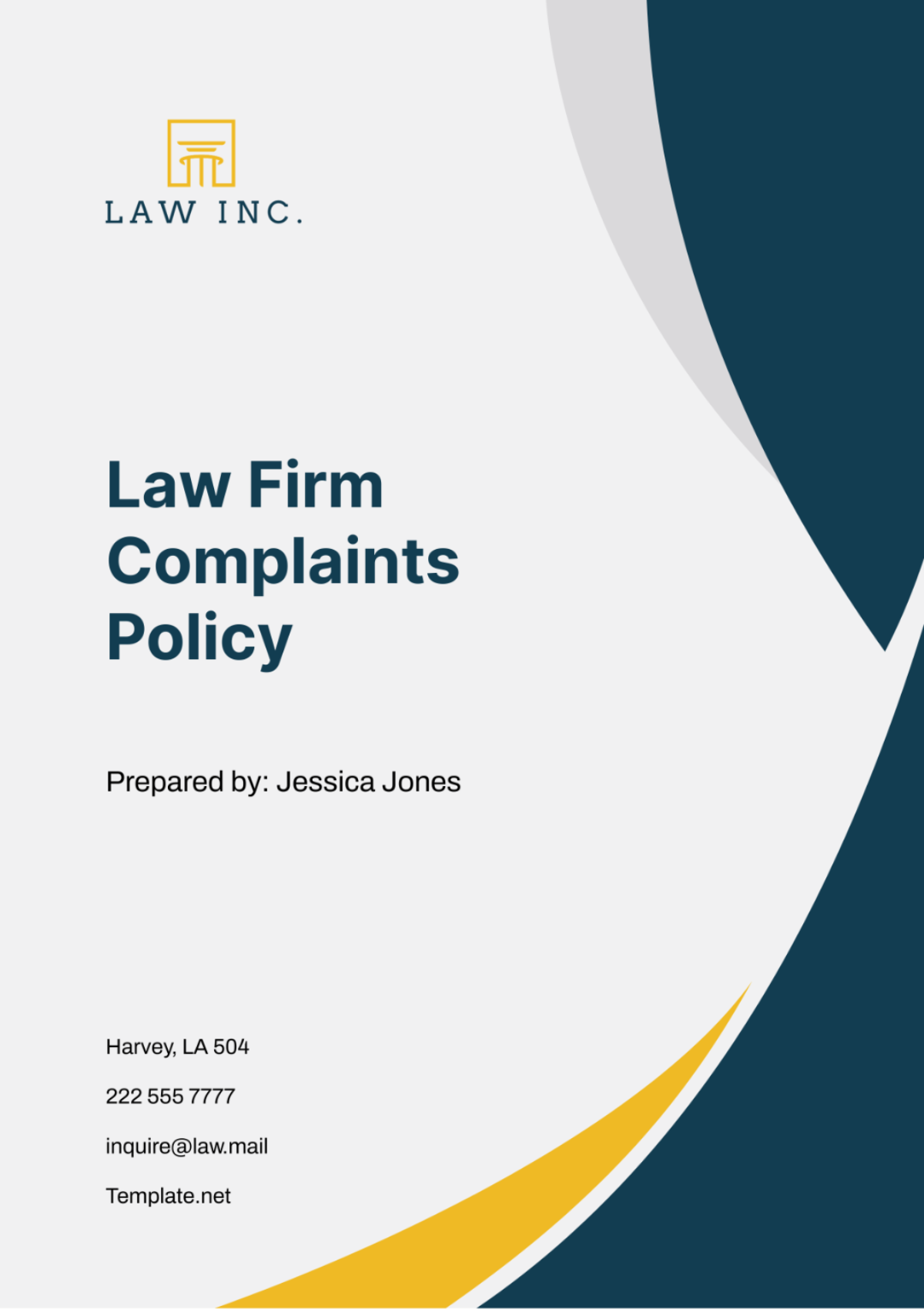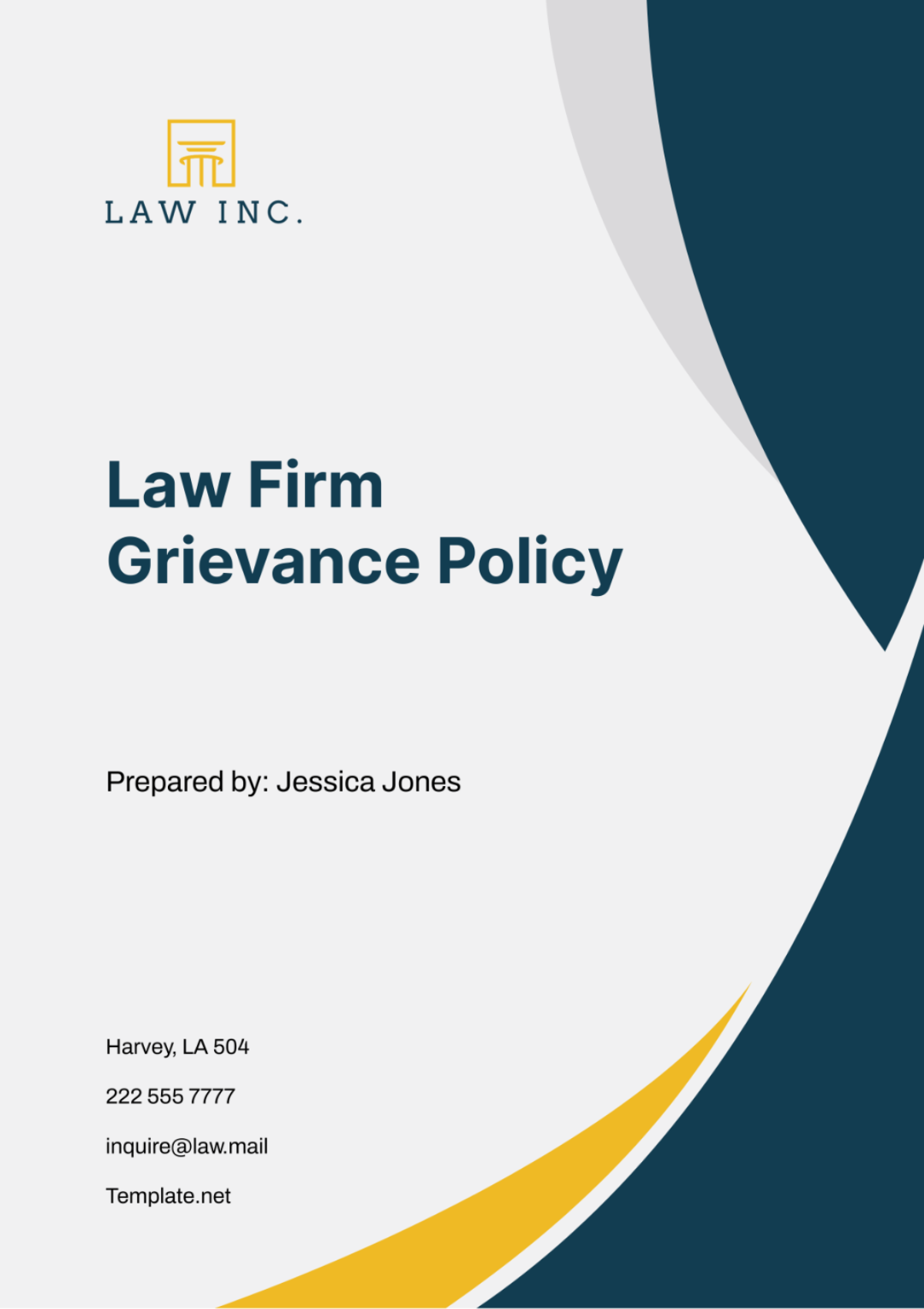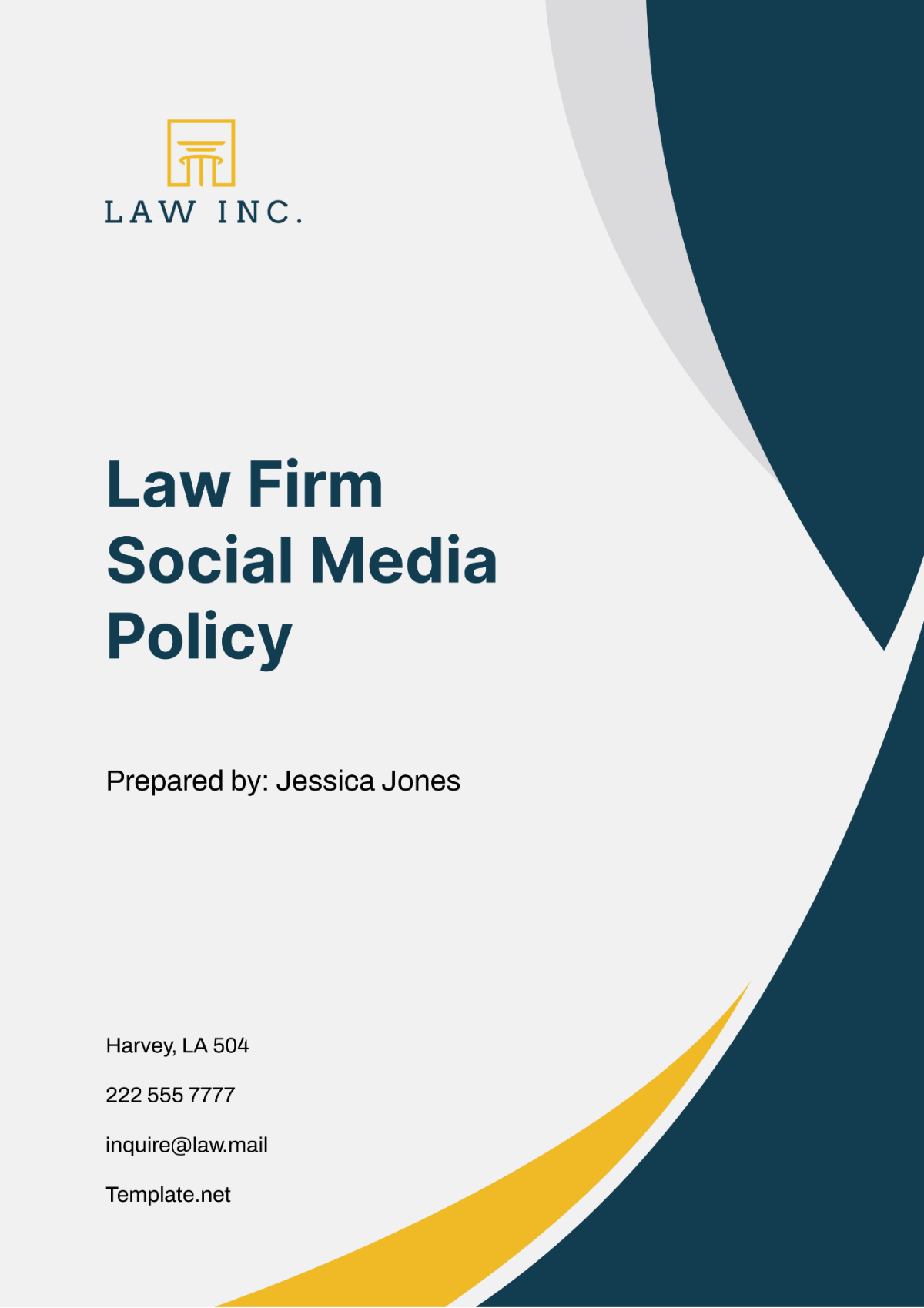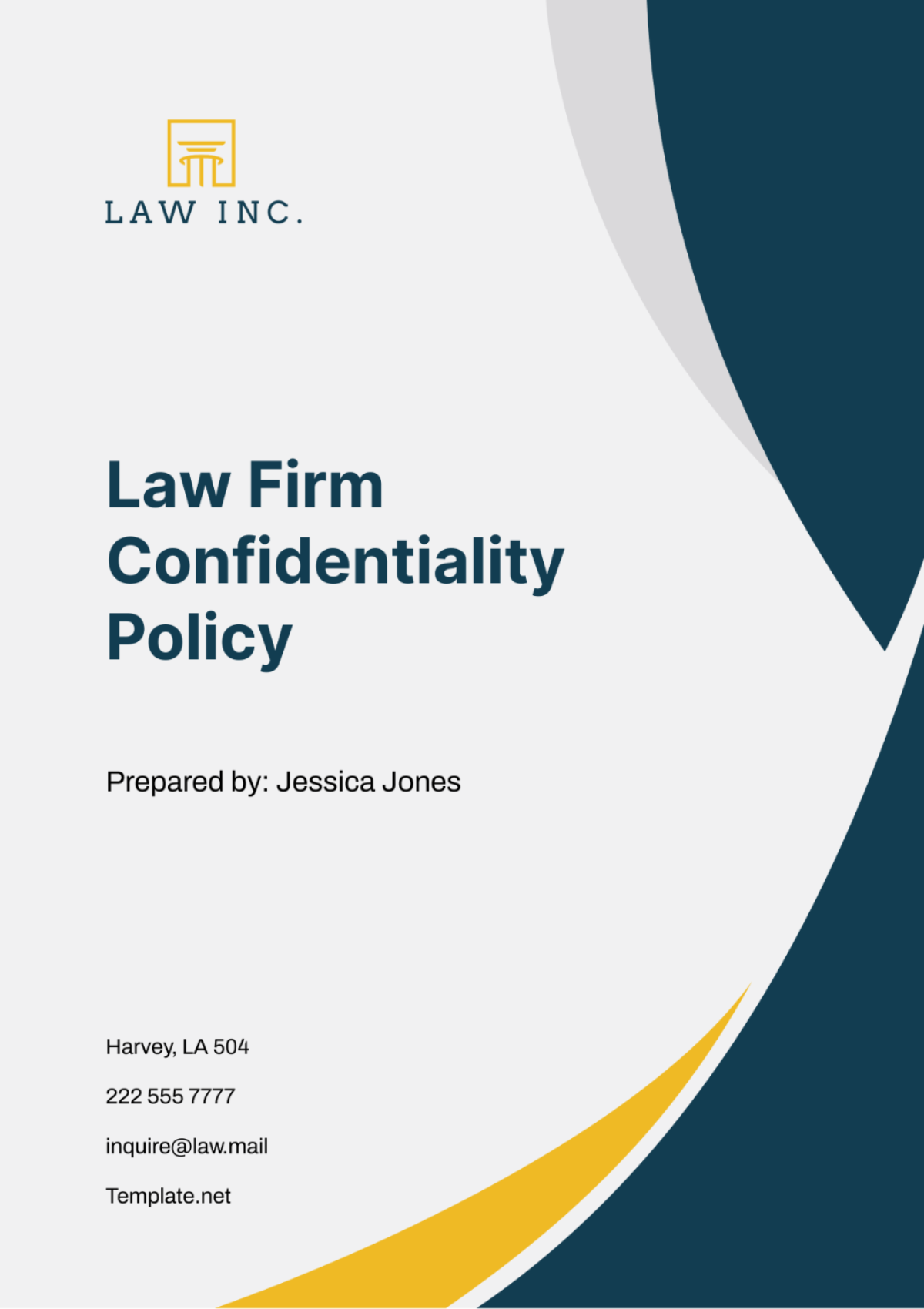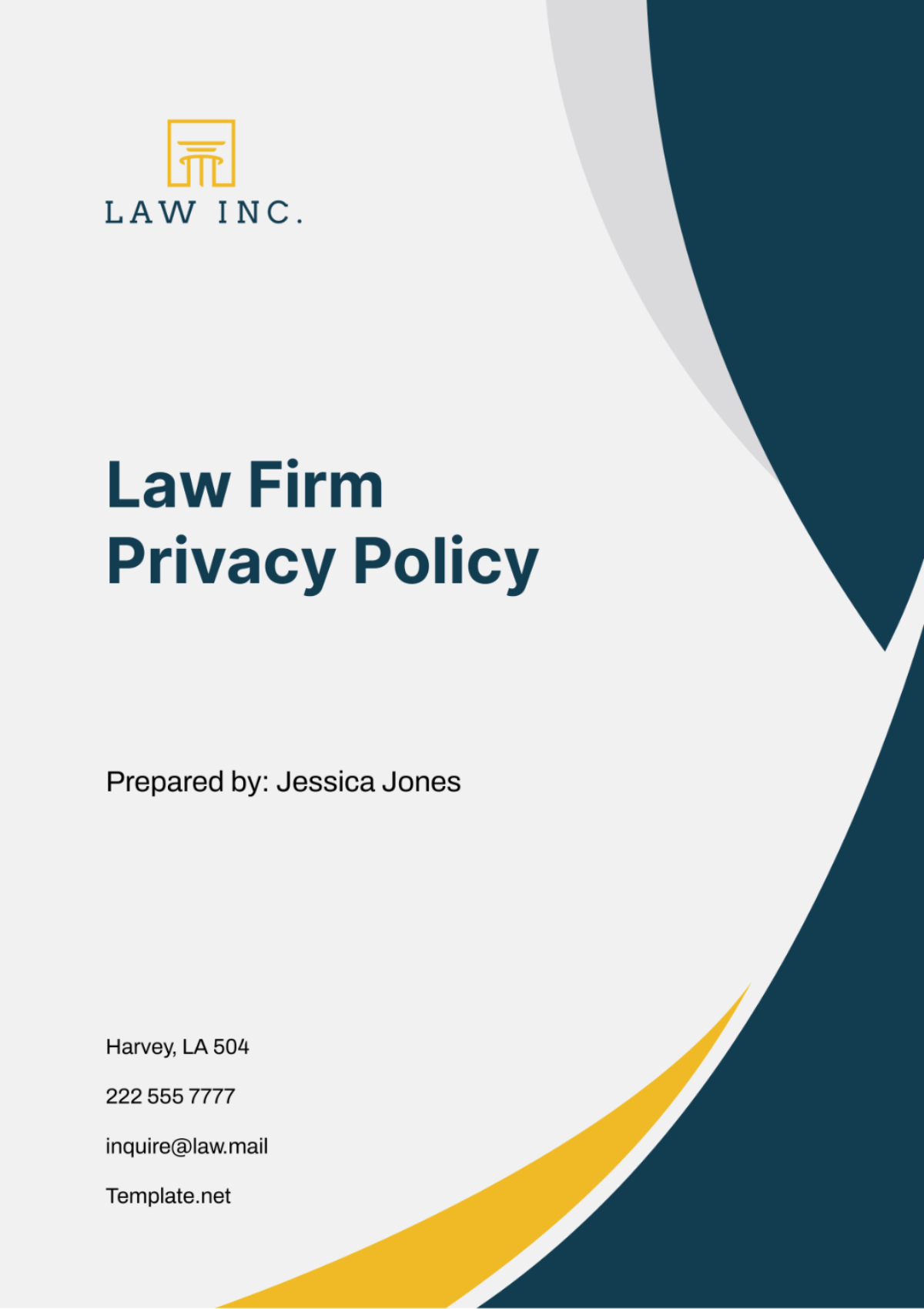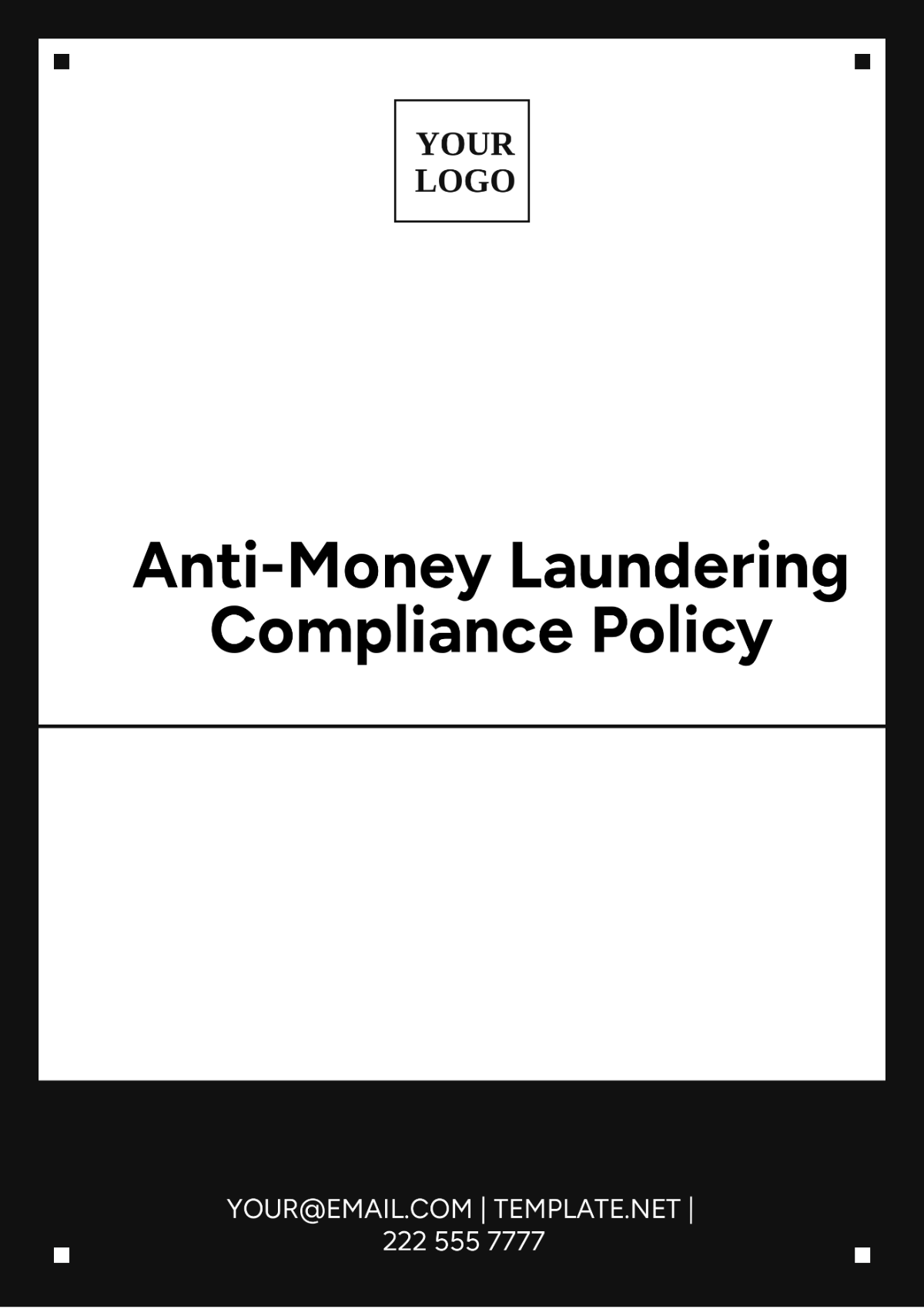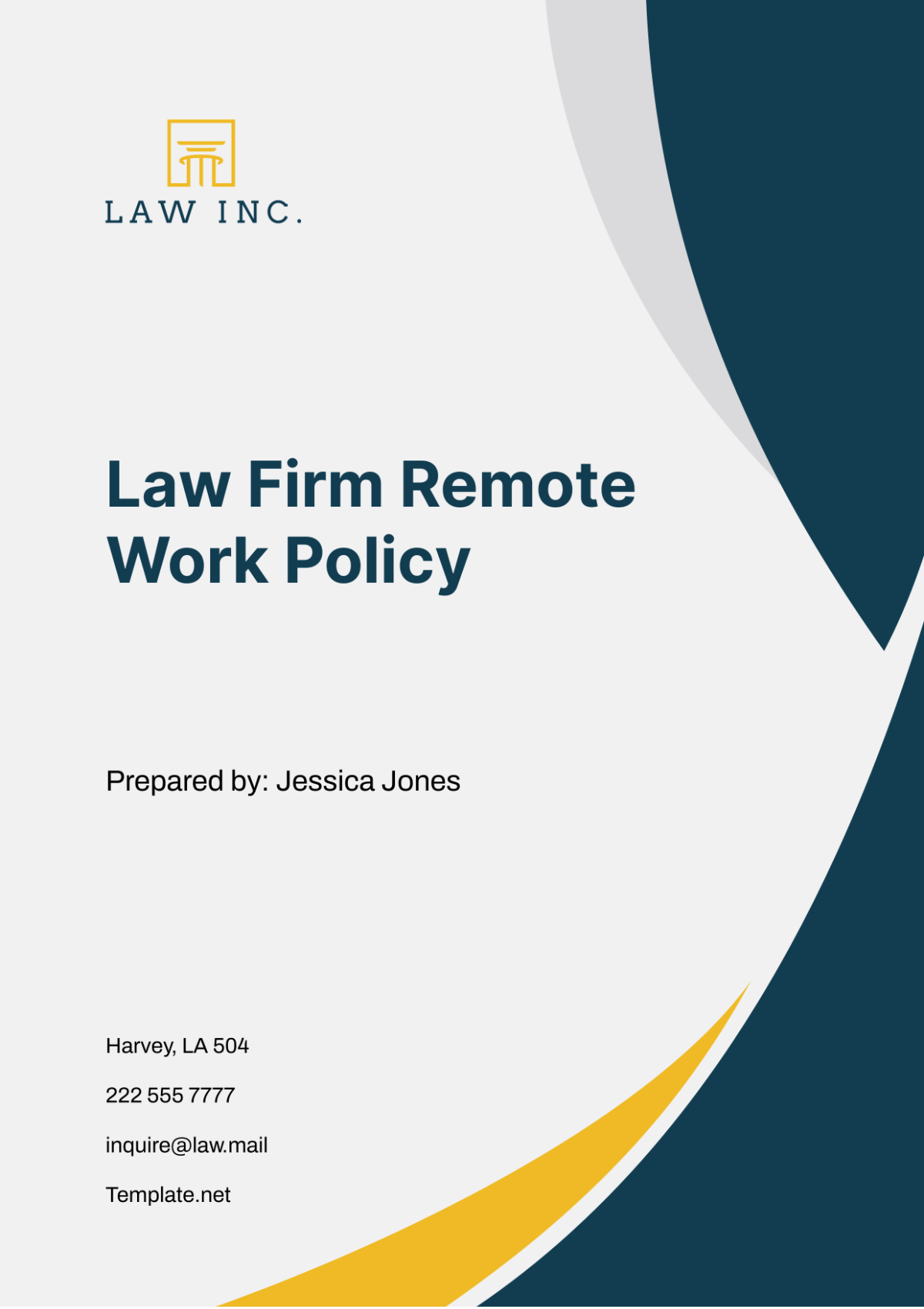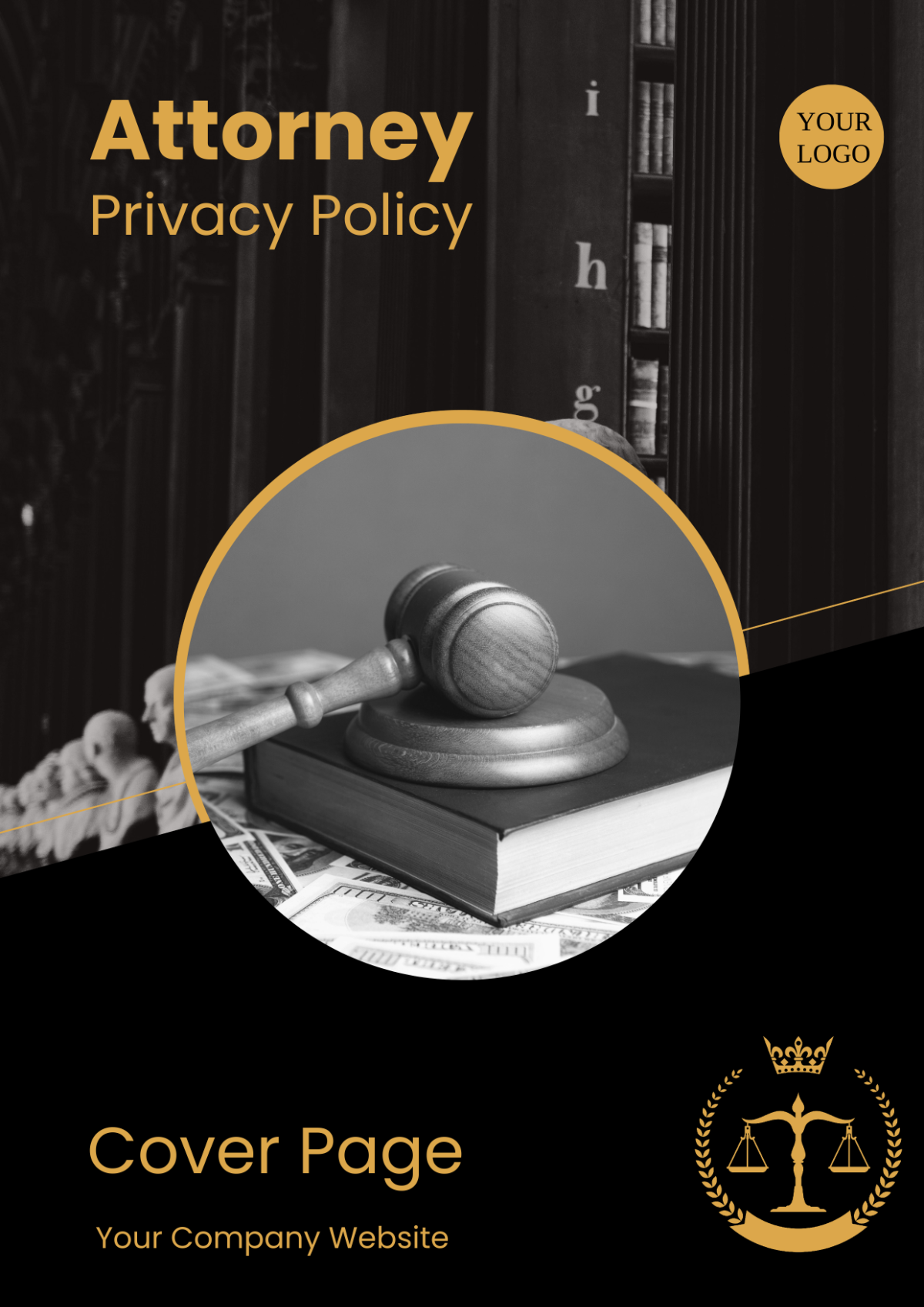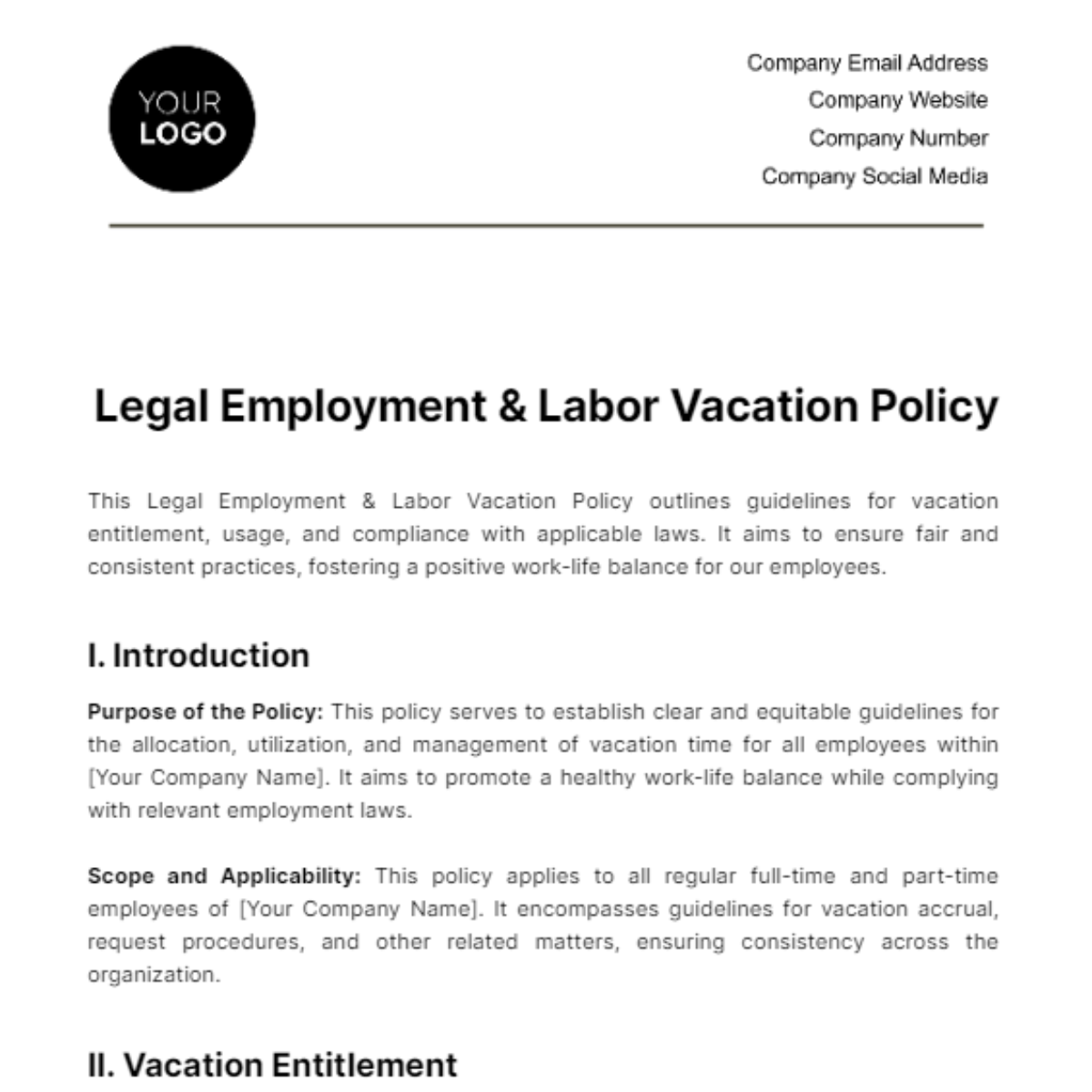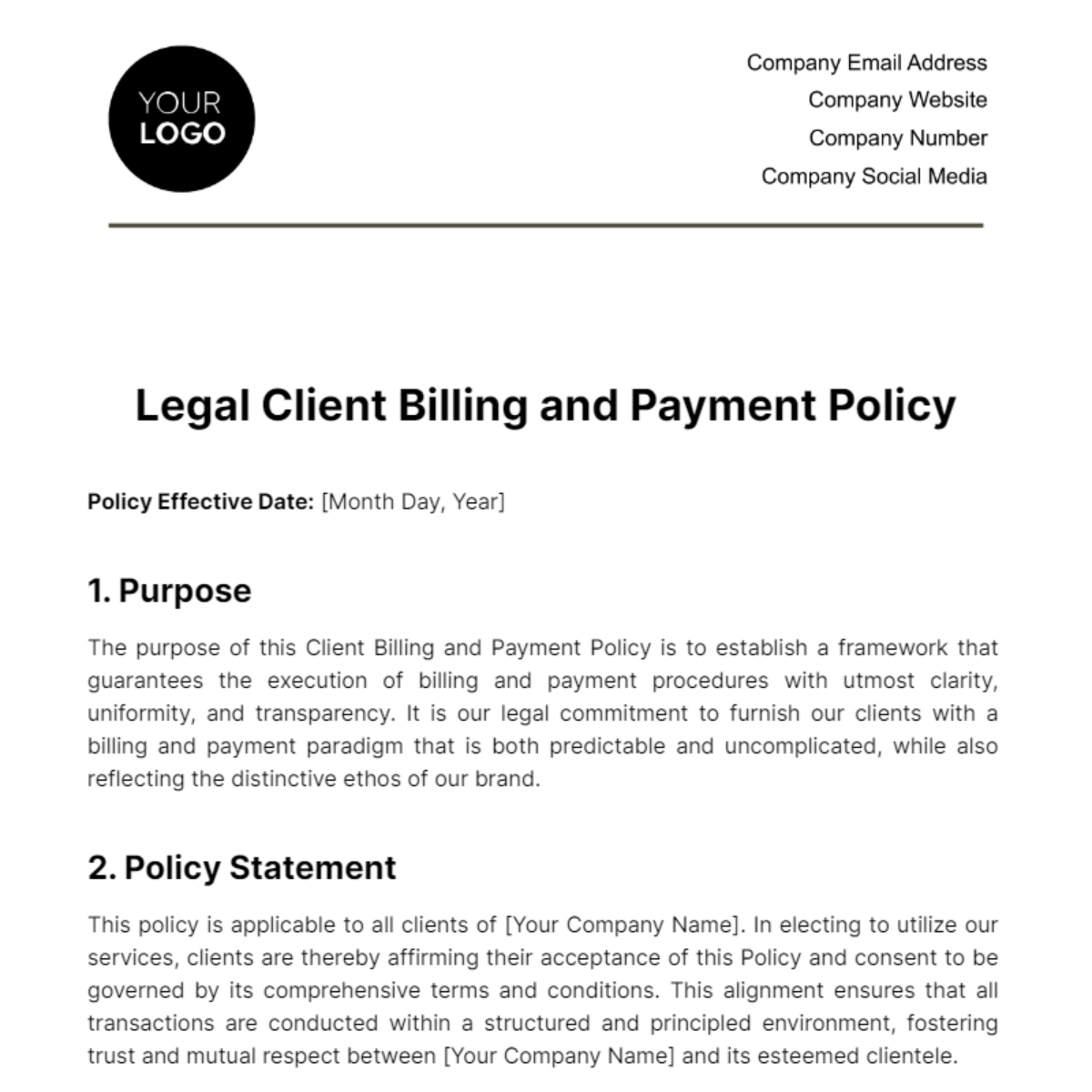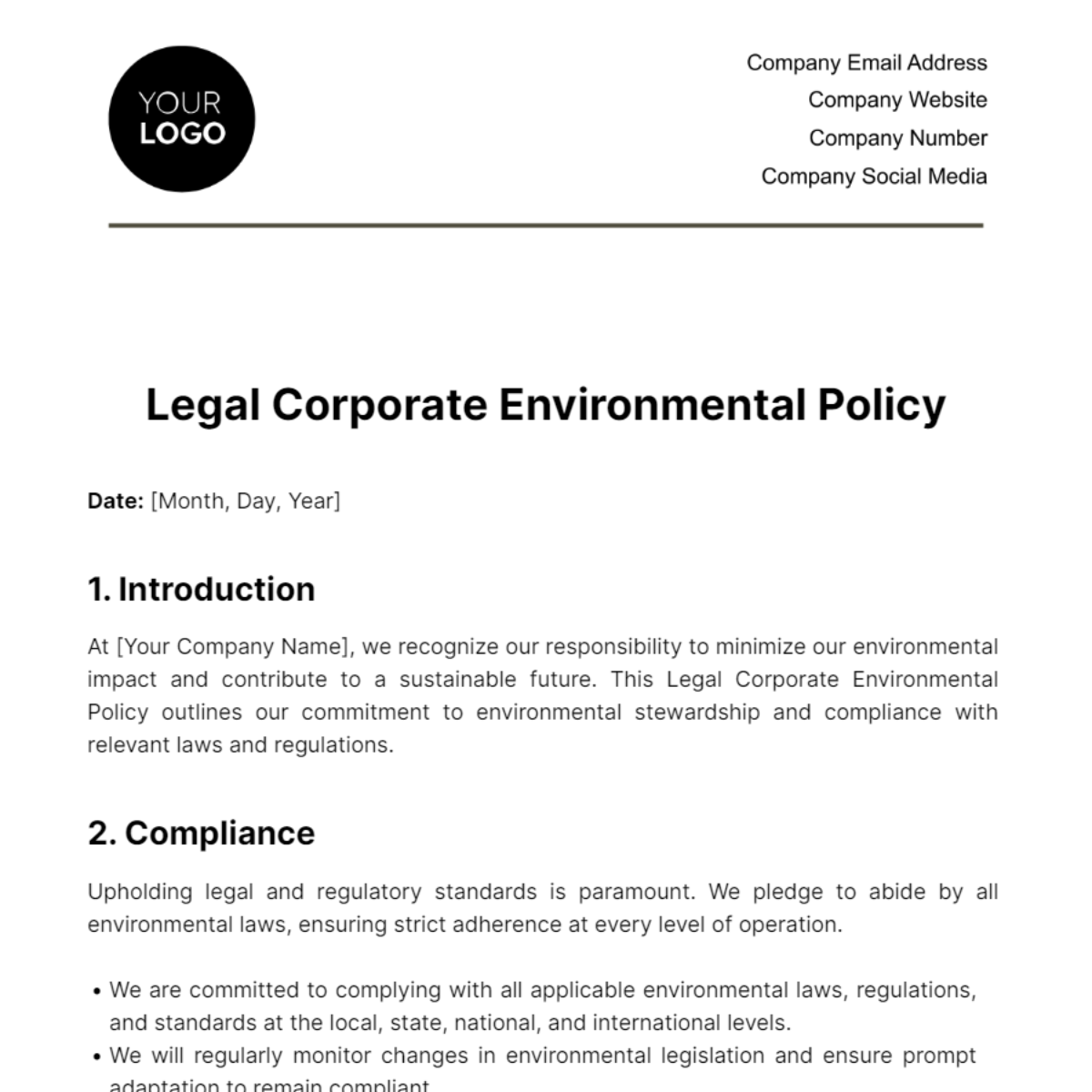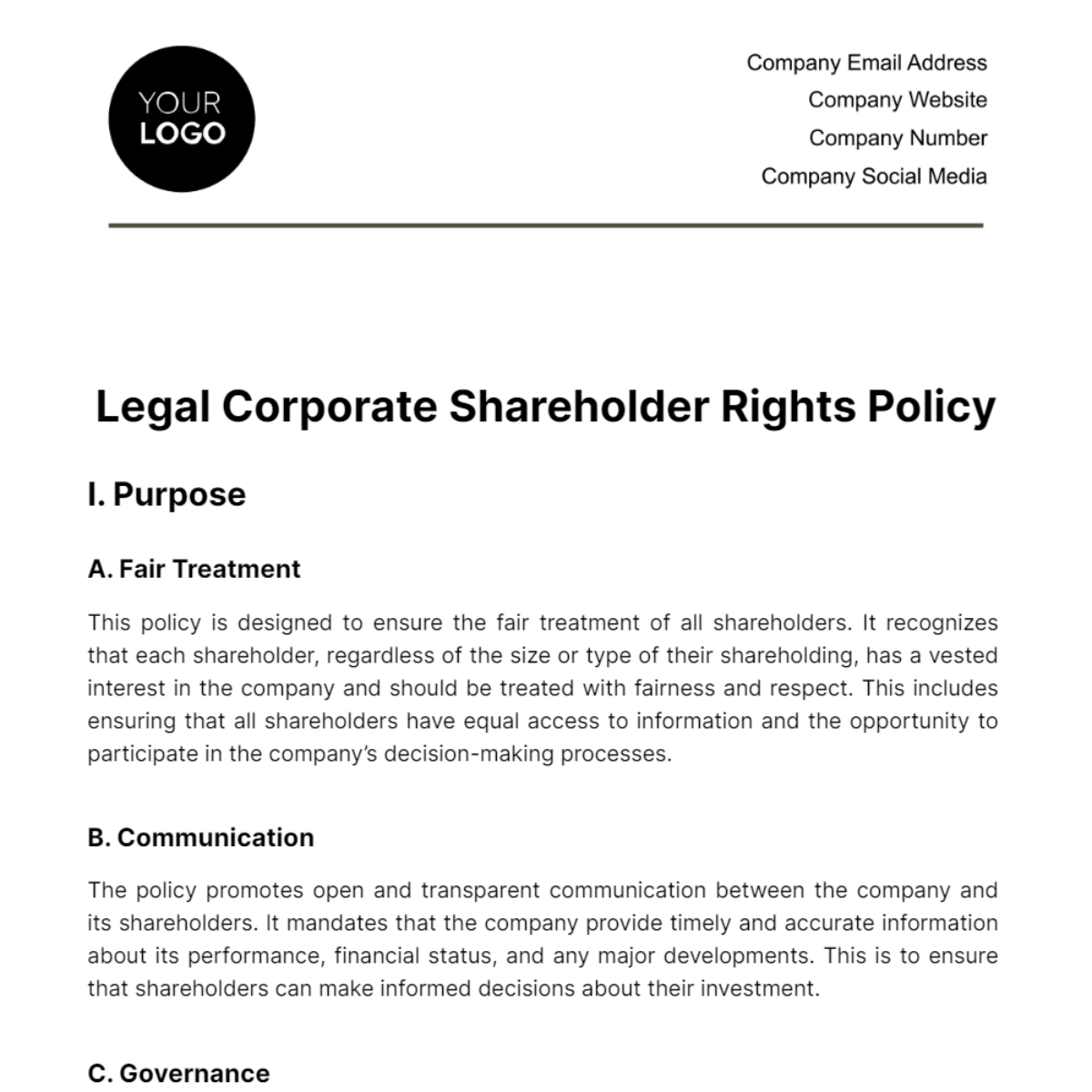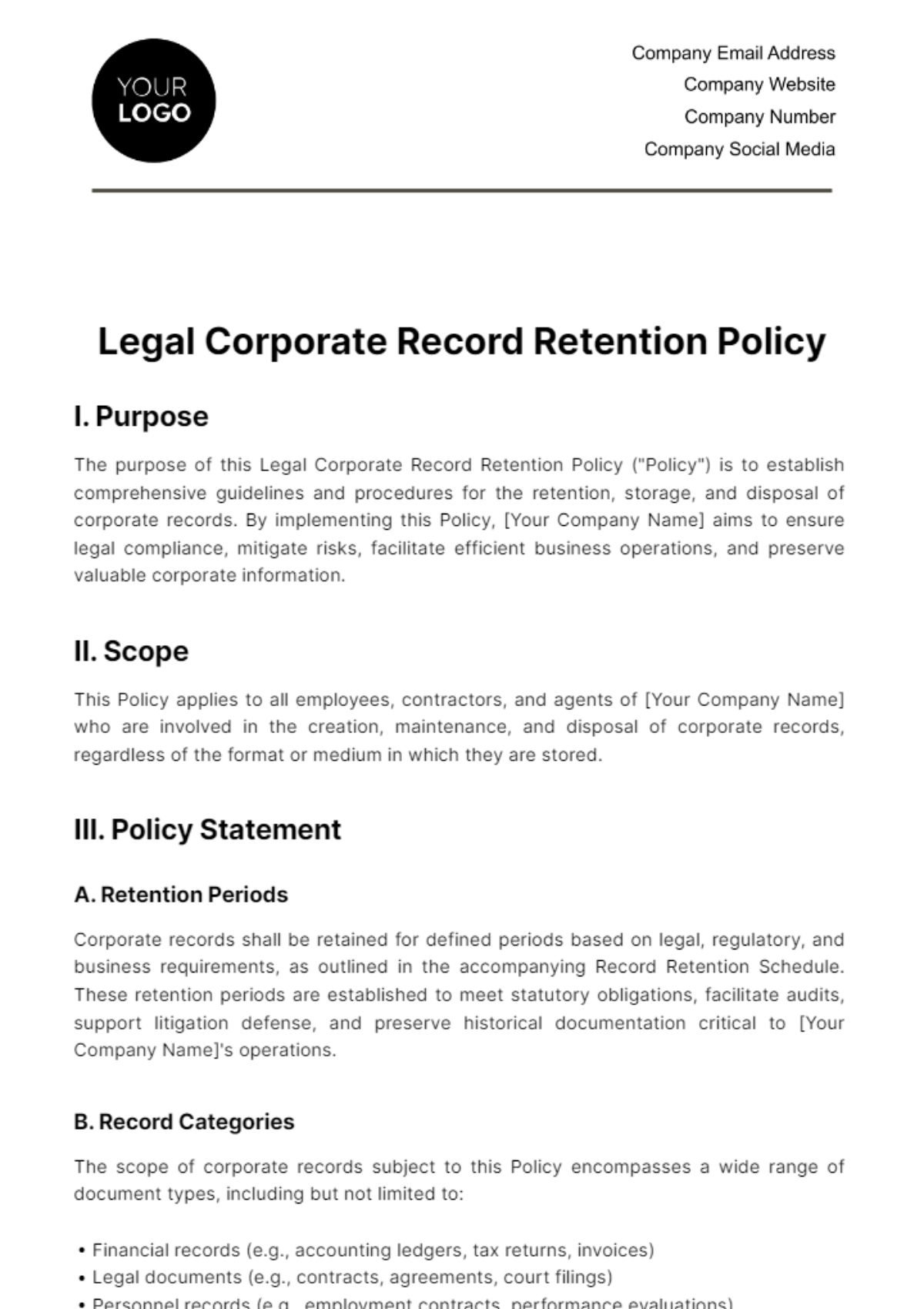I. Introduction
A. Purpose
The purpose of this Law Firm Technology Usage Policy is to establish comprehensive guidelines and procedures for the appropriate and secure utilization of technology resources within [Your Company Name]. By delineating clear expectations, this policy aims to foster a culture of responsible and ethical technology use among all employees, contractors, and authorized users.
In alignment with [Your Company Name]'s commitment to excellence and client confidentiality, this policy endeavors to uphold the integrity, confidentiality, and availability of all data and information systems. Through adherence to these guidelines, [Your Company Name] seeks to mitigate risks associated with unauthorized access, data breaches, and misuse of technology resources.
B. Scope
This policy applies to a broad spectrum of technology resources owned or provided by [Your Company Name]. These encompass, but are not limited to, the following:
Technology Resources |
|---|
Computers |
Laptops |
Mobile Devices |
Software Applications |
Internet Access |
Electronic Communication Systems |
Data Storage Systems |
All employees, contractors, and authorized users are obligated to comply with the stipulations outlined in this policy when utilizing any of the aforementioned technology resources. Recognizing the critical role of technology in modern legal practice, adherence to these guidelines is imperative to safeguarding [Your Company Name]'s operations, reputation, and client trust.
II. Acceptable Use of Technology Resources
A. General Guidelines
Employees are entrusted to utilize [Your Company Name]'s technology resources judiciously, adhering to principles of responsibility, integrity, and legality.
While permissible within reasonable bounds, personal use of company technology resources must not impede work obligations, compromise network performance, or jeopardize cybersecurity.
It is incumbent upon all employees to refrain from activities that may tarnish [Your Company Name]'s reputation or contravene its policies. This includes abstaining from accessing illicit content, participating in unlawful endeavors, or divulging confidential information without appropriate authorization.
B. Internet and Email Usage
Internet access and email services furnished by [Your Company Name] are exclusively designated for professional endeavors.
Employees are enjoined to exercise discernment when navigating online platforms, abstaining from interactions or downloads that may undermine network security or infringe upon intellectual property rights.
All electronic correspondence must exhibit professionalism and respect, with employees refraining from disseminating chain letters, spam, or unsolicited messages.
Confidential information or proprietary data should not be transmitted via email unless requisite encryption or secure channels are employed.
To maintain compliance with this policy and pertinent regulations, [Your Company Name] reserves the prerogative to monitor internet and email usage activities within its network.
C. Data Security
Safeguarding [Your Company Name]'s confidential and proprietary information is a collective responsibility incumbent upon all employees.
To fortify data security measures, employees must adopt robust password protocols, employ encryption for sensitive data, and adhere meticulously to data handling procedures delineated in [Your Company Name]'s Information Security Policy.
Any unauthorized access to or dissemination of confidential information is strictly proscribed and may elicit disciplinary repercussions, including potential termination of employment.
In the event of suspected security breaches or unauthorized data access, employees are obligated to promptly report such incidents to the IT department for expeditious investigation and remedial action.
III. Device Usage
A. Computer and Mobile Device Security
It is imperative for employees to uphold stringent security measures on all company-assigned computers and mobile devices. This includes activating password protection mechanisms, ensuring screen locks are enabled when devices are not in use, and regularly updating antivirus software to mitigate potential threats.
In the event of a lost or stolen device, employees must promptly report the incident to the IT department. This proactive measure helps prevent unauthorized access to sensitive company data and allows for appropriate measures, such as remote data wiping or device tracking, to be undertaken.
Unauthorized installation of software or applications on company-owned devices poses significant risks to [Your Company Name]'s information security posture. Employees are strictly prohibited from installing any software that has not been explicitly authorized by the IT department. Such unauthorized installations may introduce vulnerabilities, malware, or conflicts with existing systems, thereby compromising the integrity and confidentiality of company data.
B. Software Installation and Licensing
Only software provided or approved by [Your Company Name] may be installed on company-owned devices. Employees must adhere strictly to this policy and refrain from installing any unauthorized software.
Prior to installing new software or requesting software upgrades, employees are required to seek approval from the IT department. This ensures compatibility with existing systems, compliance with licensing agreements, and alignment with company security protocols.
Any software installed on company devices must be appropriately licensed, and employees must adhere to all licensing agreements and usage terms. Unauthorized use of unlicensed software not only violates legal obligations but also exposes [Your Company Name] to potential legal and financial liabilities.
IV. Monitoring and Enforcement
A. Monitoring
In the interest of maintaining network security, safeguarding sensitive information, and ensuring compliance with company policies and regulatory requirements, [Your Company Name] reserves the right to monitor employee usage of technology resources.
Monitoring activities may encompass various aspects, including but not limited to:
Reviewing internet browsing history to detect unauthorized or inappropriate activities.
Scanning email communications for compliance with company policies and regulatory standards.
Auditing file access logs to identify any irregularities or potential security breaches.
It is emphasized that monitoring activities will be conducted in accordance with applicable laws and regulations governing employee privacy and data protection. [Your Company Name] is committed to upholding the privacy rights of its employees while ensuring the integrity and security of its technology infrastructure.
B. Enforcement
Violations of this policy will be subject to enforcement measures, which may include disciplinary action in accordance with [Your Company Name]'s established policies and procedures.
Disciplinary actions for policy violations may range from verbal warnings to written reprimands, suspension, and ultimately, termination of employment, depending on the severity and recurrence of the offense.
Employees found to have violated this policy may also be subject to legal action if their actions have resulted in harm to [Your Company Name], its clients, or third parties.
[Your Company Name] is committed to ensuring fair and transparent enforcement of this policy. Employees will be provided with due process rights, including the opportunity to respond to allegations, present evidence, and appeal any disciplinary decisions made.
Records of policy violations and disciplinary actions taken will be maintained by [Your Company Name] for documentation and reference purposes. These records may be utilized in future incidents or legal proceedings to demonstrate compliance efforts and uphold the integrity of [Your Company Name]'s policies and practices.
V. Policy Acknowledgment
A. Acknowledgment
All employees, contractors, and authorized users are required to review and acknowledge their understanding of this Law Firm Technology Usage Policy upon commencement of employment and annually thereafter.
Acknowledgment of this policy signifies the individual's commitment to adhere to its provisions and guidelines governing the responsible use of [Your Company Name]'s technology resources.
Failure to acknowledge this policy may result in restrictions on access to technology resources until acknowledgment is obtained, thereby ensuring that all personnel are cognizant of their obligations and responsibilities.
B. Compliance
Strict adherence to this policy is mandatory for all employees, contractors, and authorized users.
Failure to comply with the stipulations outlined in this policy may result in disciplinary action, up to and including termination of employment.
Employees found to be in violation of this policy may be required to undergo additional training on technology usage and security best practices to mitigate future risks and promote compliance.
Regular audits and assessments of compliance with this policy will be conducted by the IT department to ensure effectiveness and identify areas for improvement.
It is incumbent upon all employees to promptly report any suspected violations of this policy or security incidents to the IT department for investigation and resolution.
VI. Contact Information
A. Questions and Concerns
For questions or concerns regarding this policy, employees may contact the IT department at [Your Company Email] or [Your Company Number]. Prompt and thorough responses will be provided to address any inquiries or issues related to technology usage and compliance.
Employees are encouraged to seek clarification or guidance from the IT department if they encounter situations that may require interpretation or application of this policy.
B. Policy Updates
[Your Company Name] reserves the right to update or modify this policy as needed to reflect changes in technology, industry best practices, or legal requirements.
Employees will be notified of any revisions to this policy in a timely manner, and updates will be disseminated through appropriate channels, such as email notifications, intranet announcements, or staff meetings.
It is the responsibility of all employees to familiarize themselves with the latest version of this policy and ensure ongoing compliance with its provisions.
Feedback and suggestions for improving this policy are welcomed and encouraged. Employees may submit recommendations for policy enhancements or modifications to the IT department for consideration in future updates.
